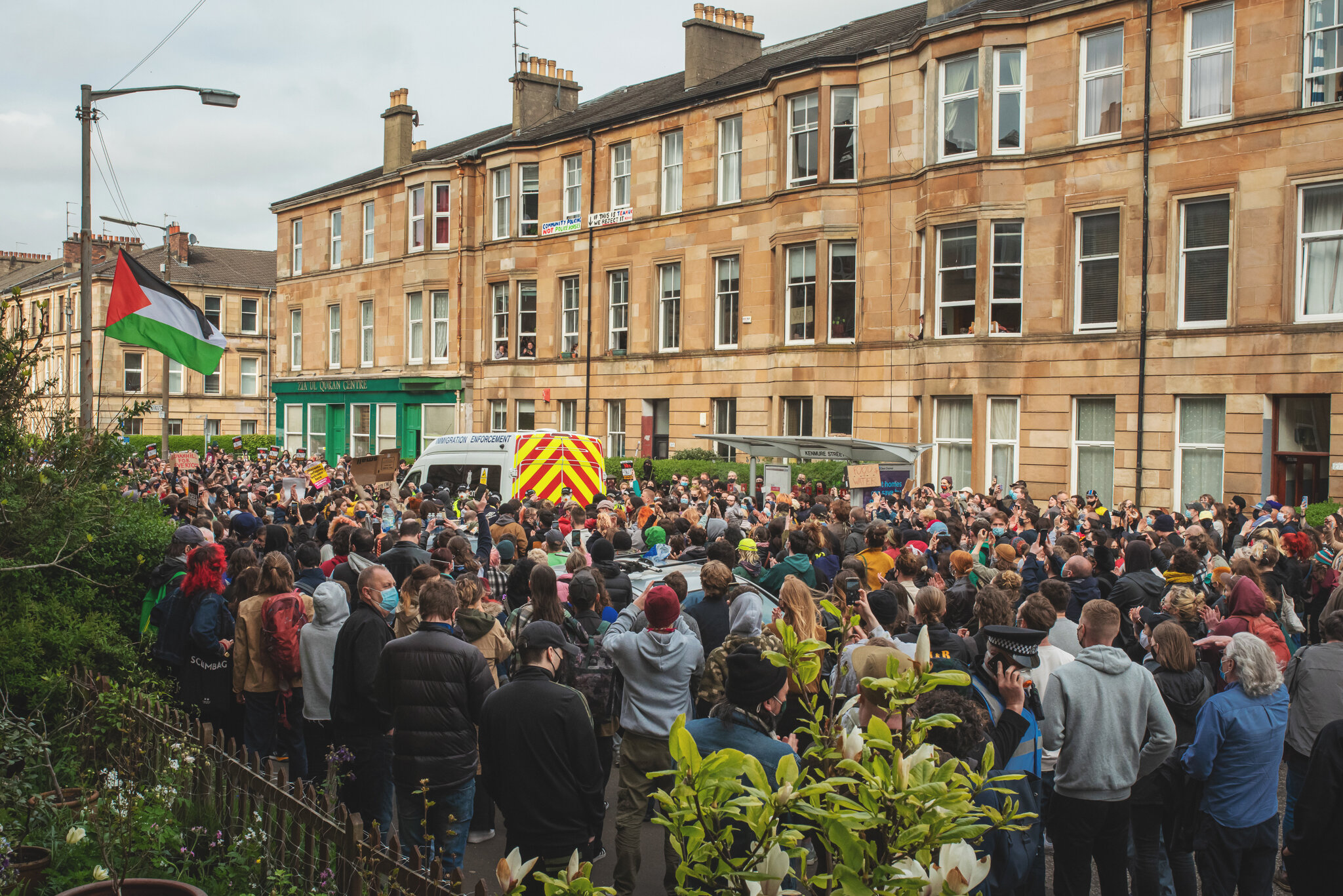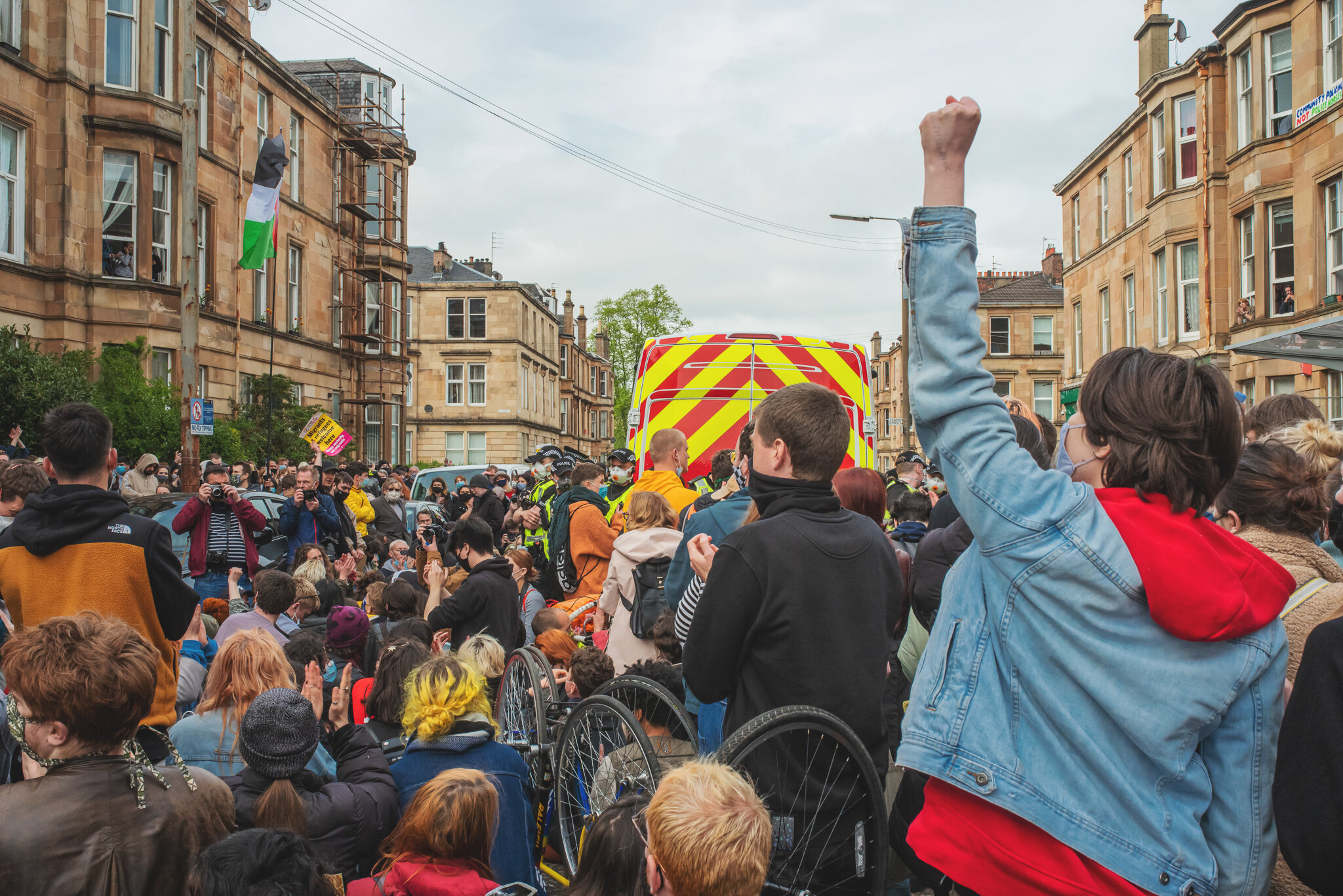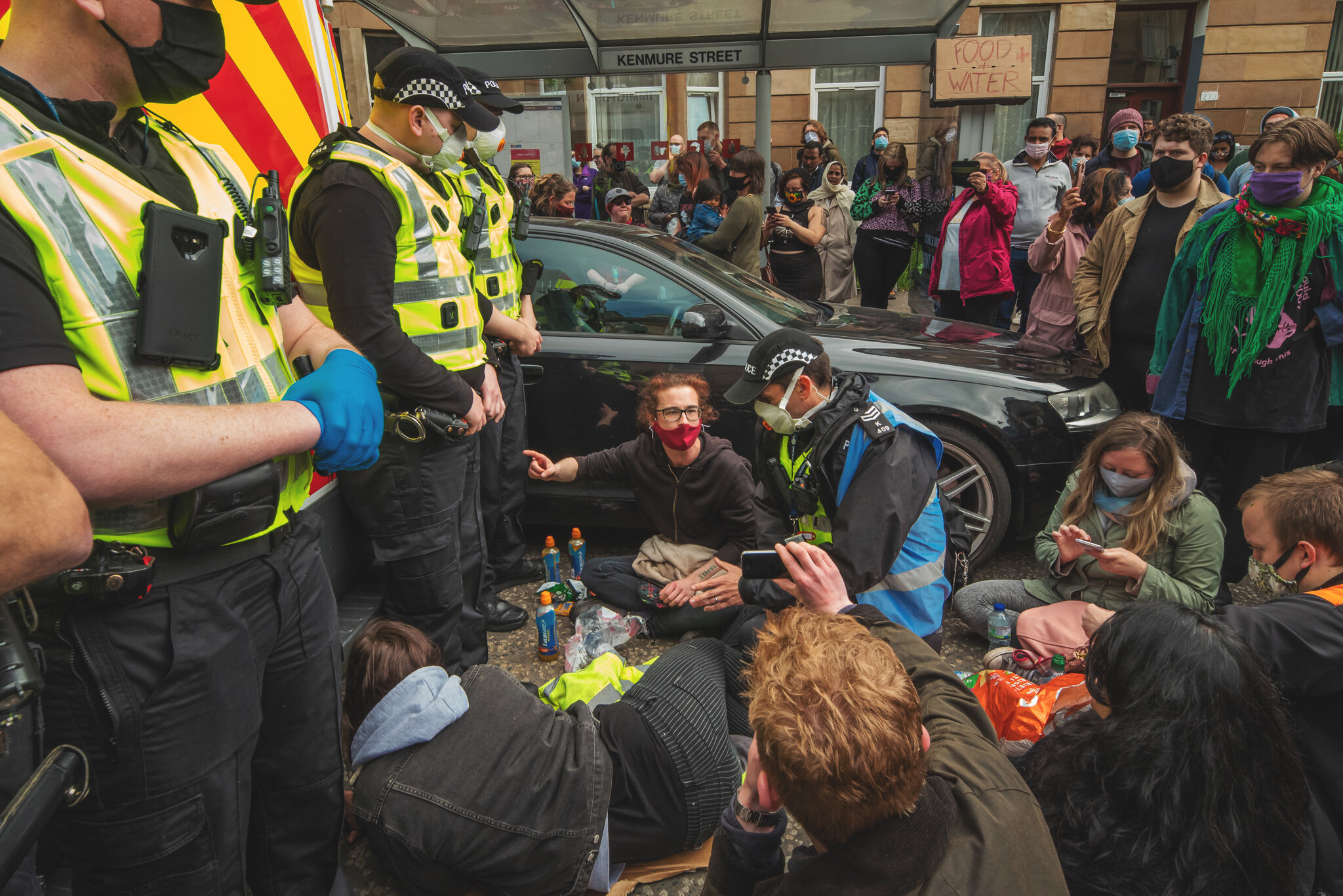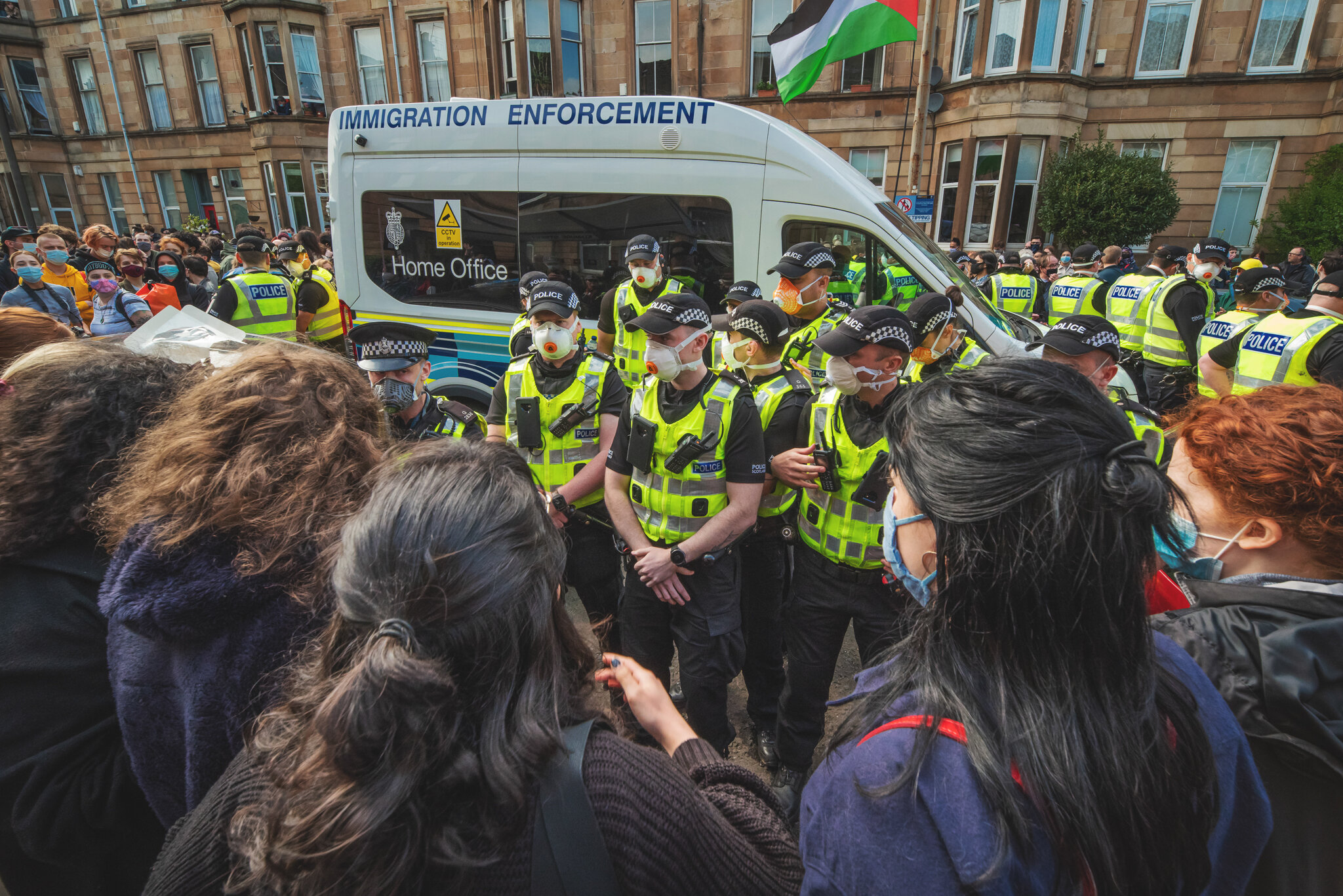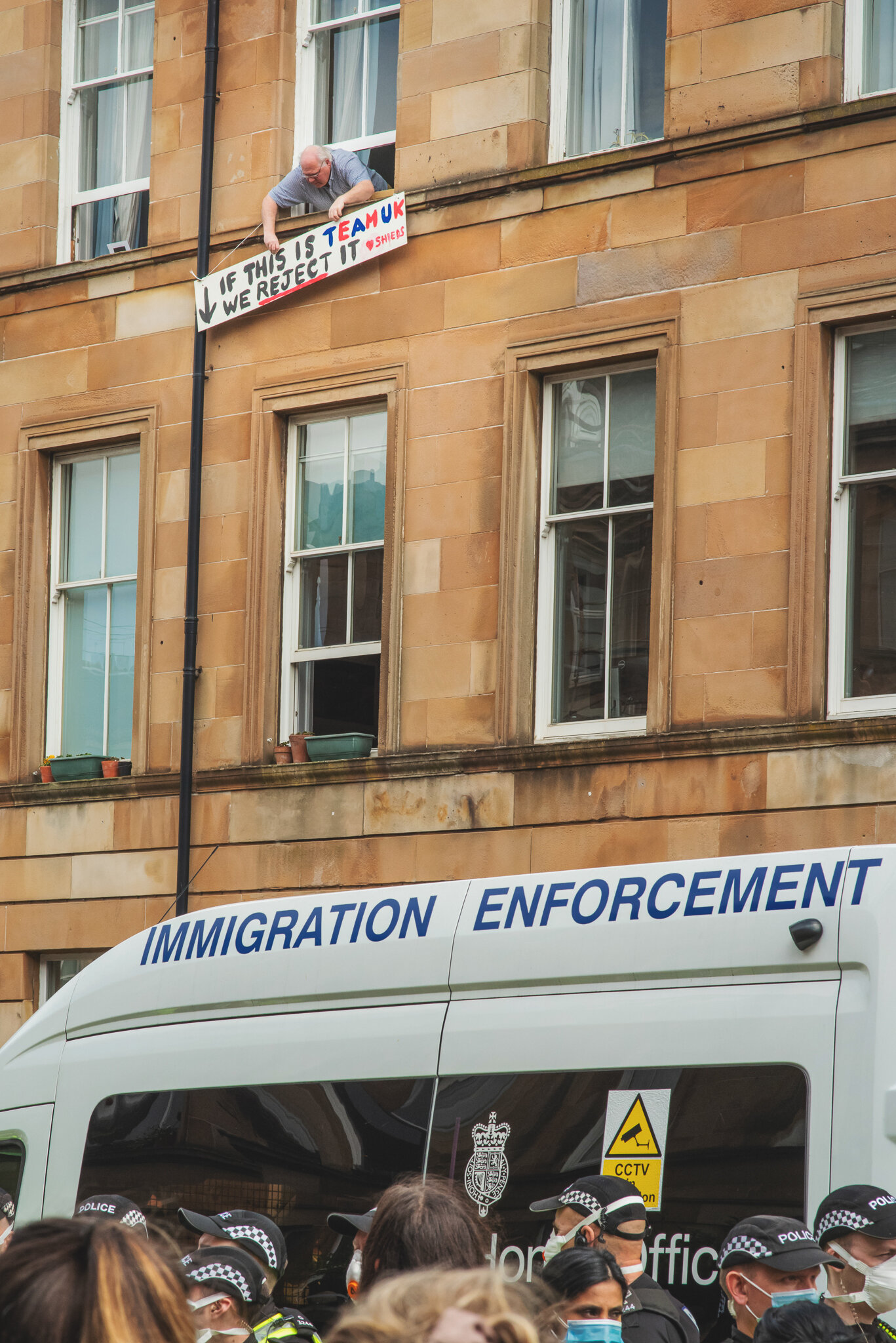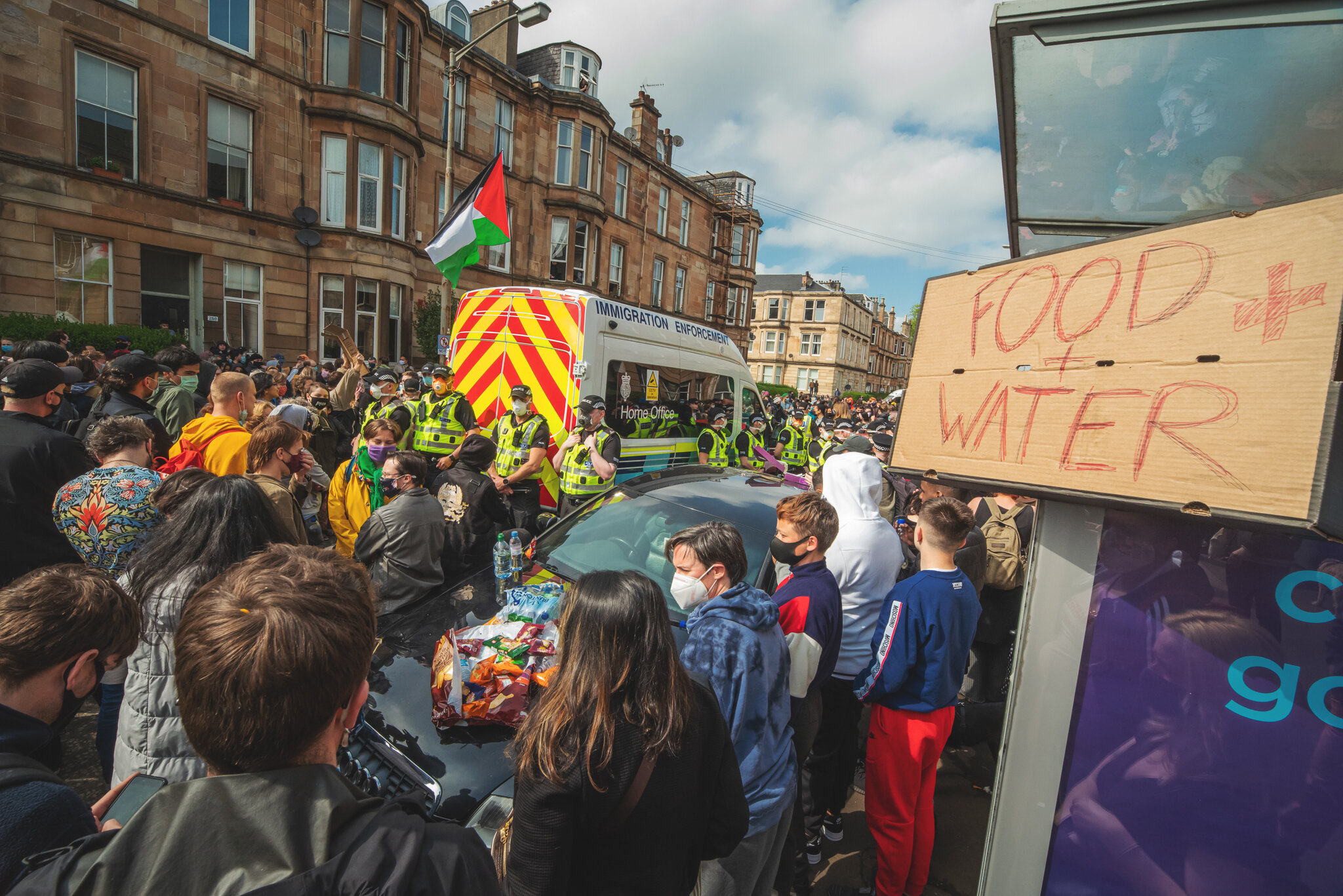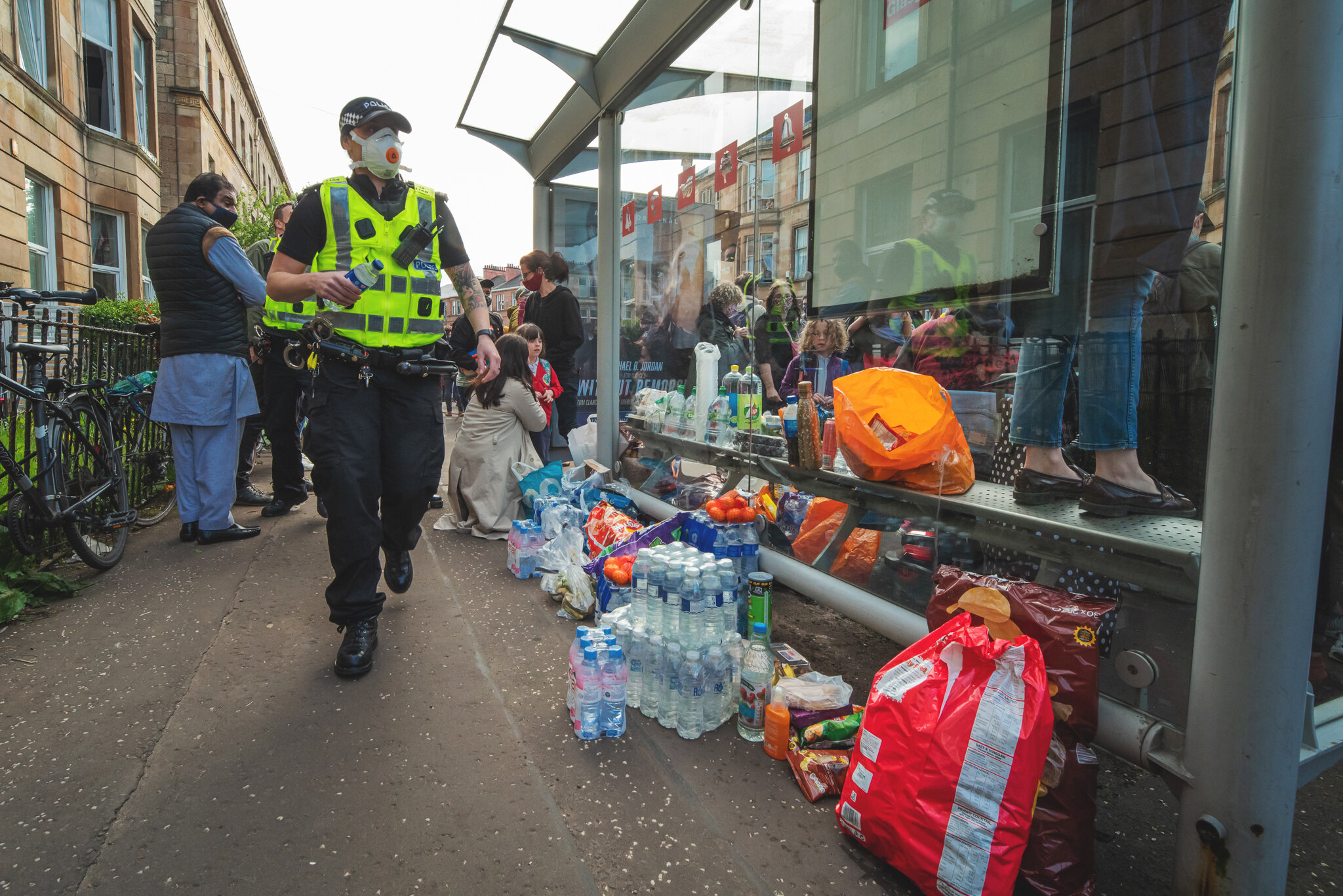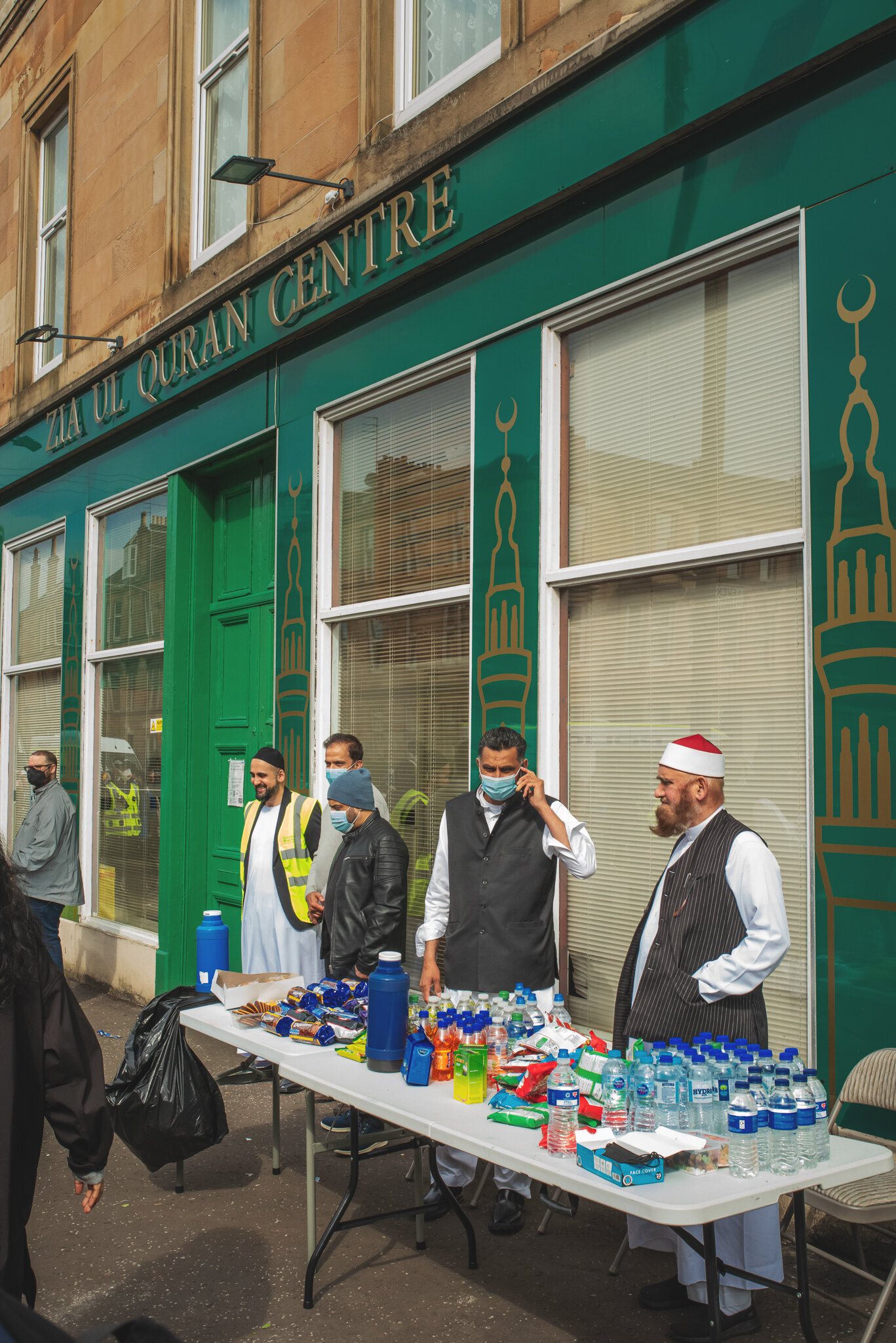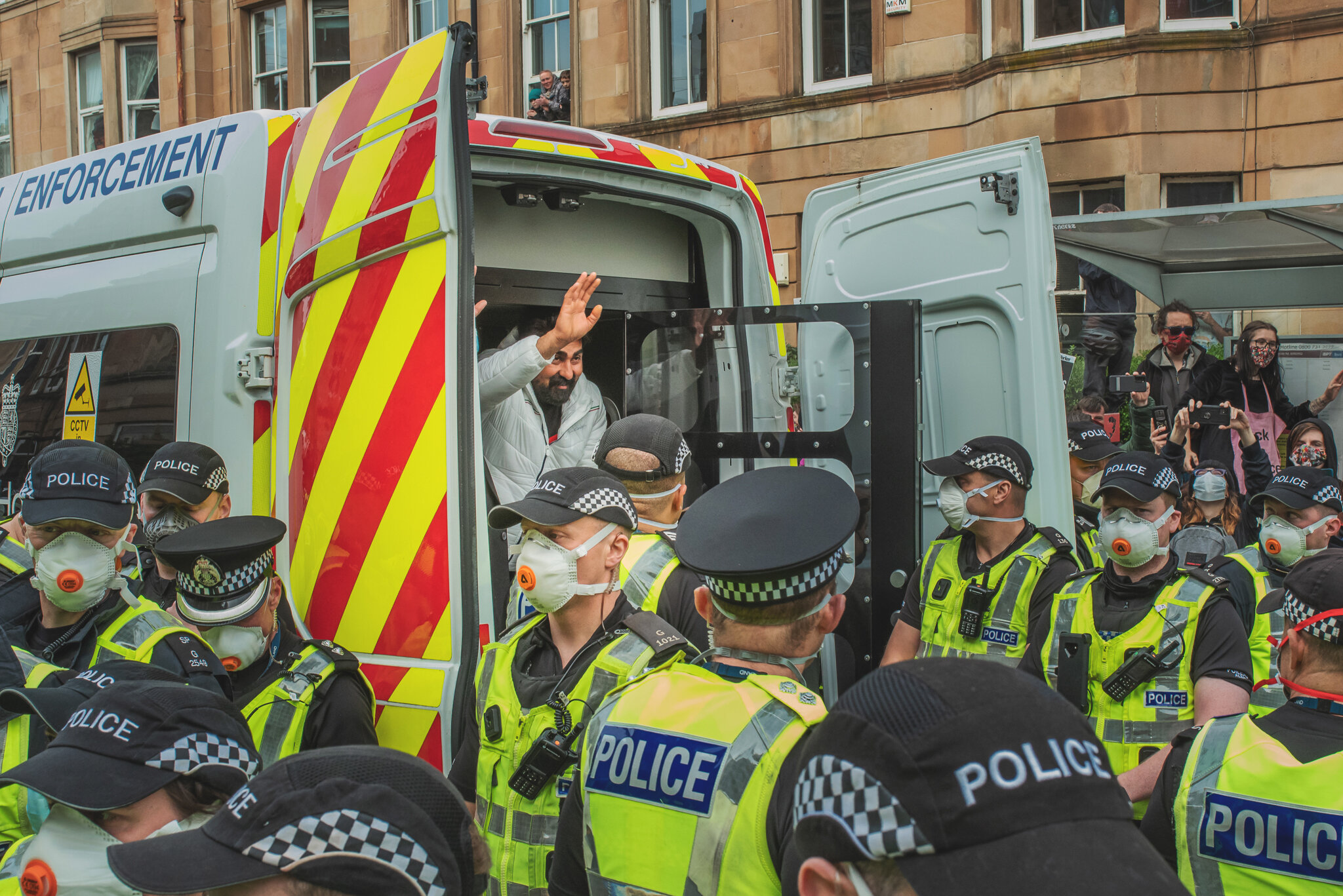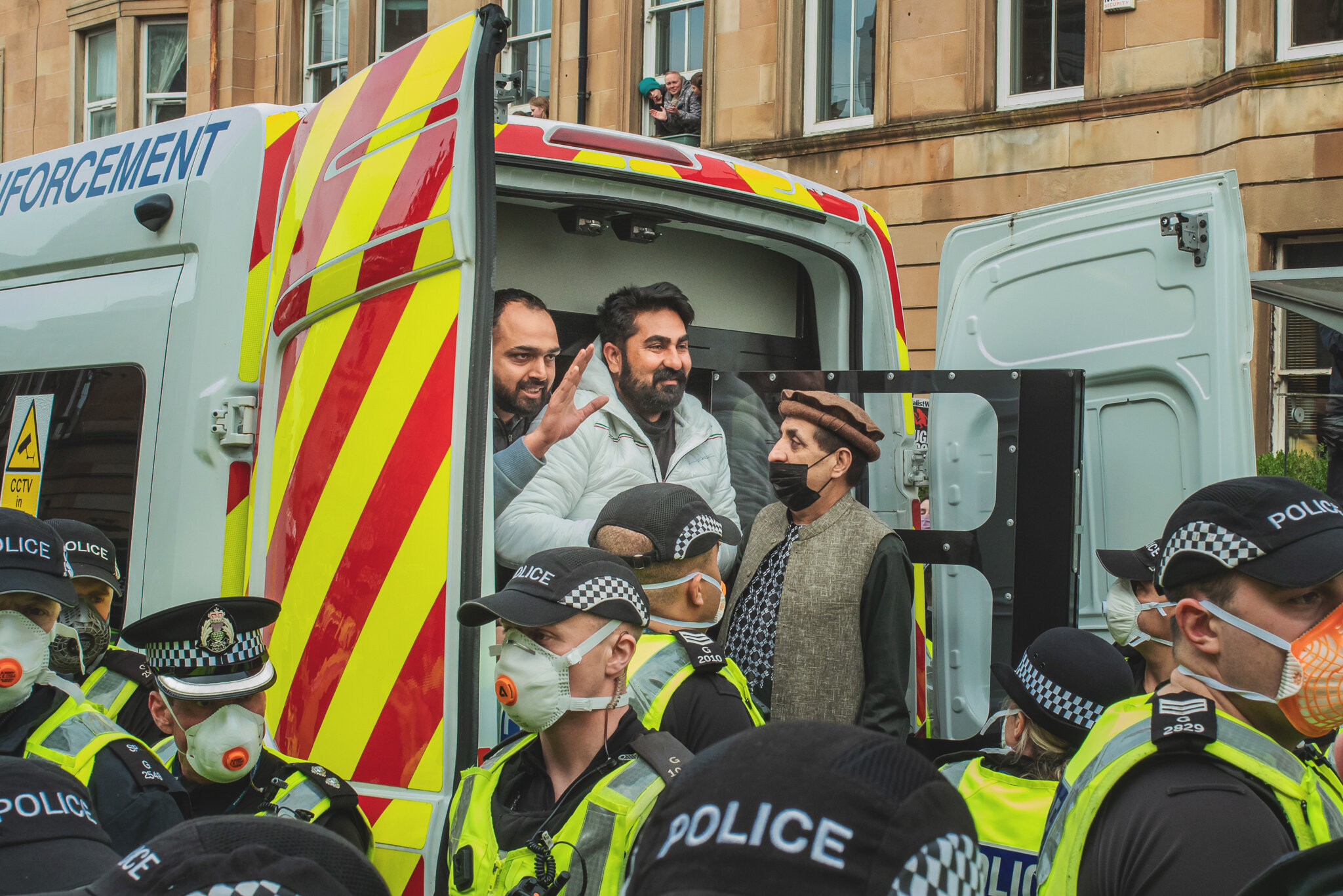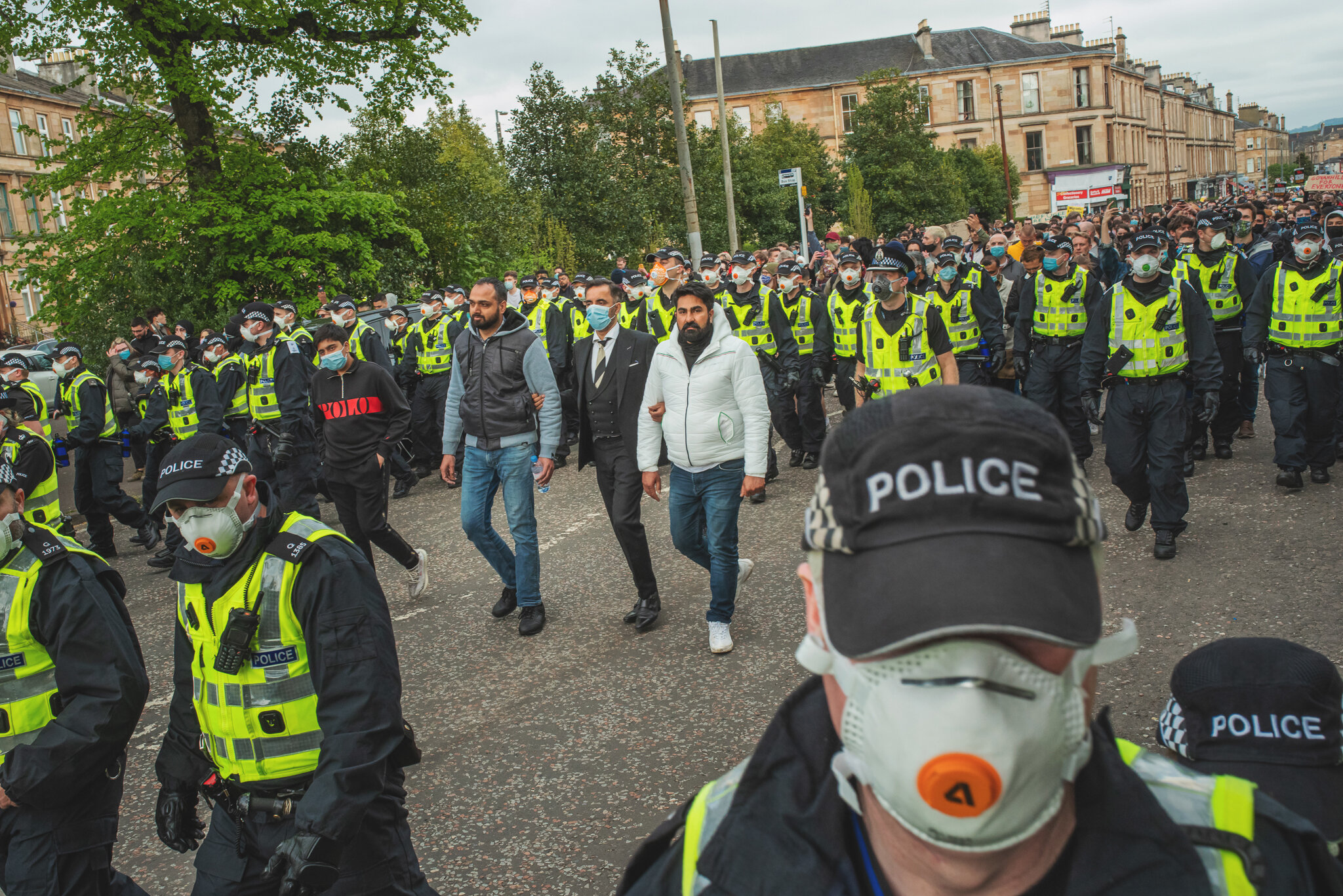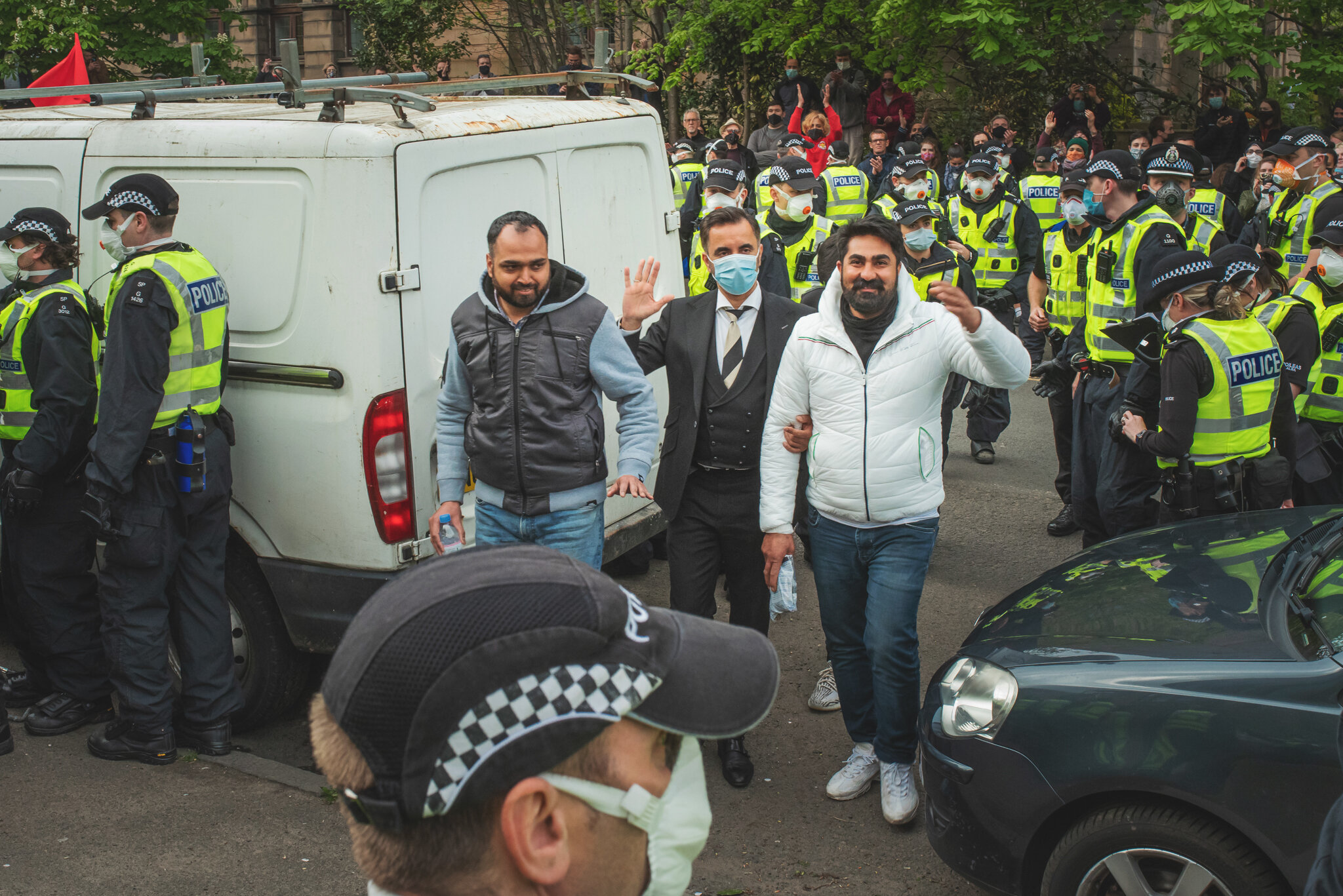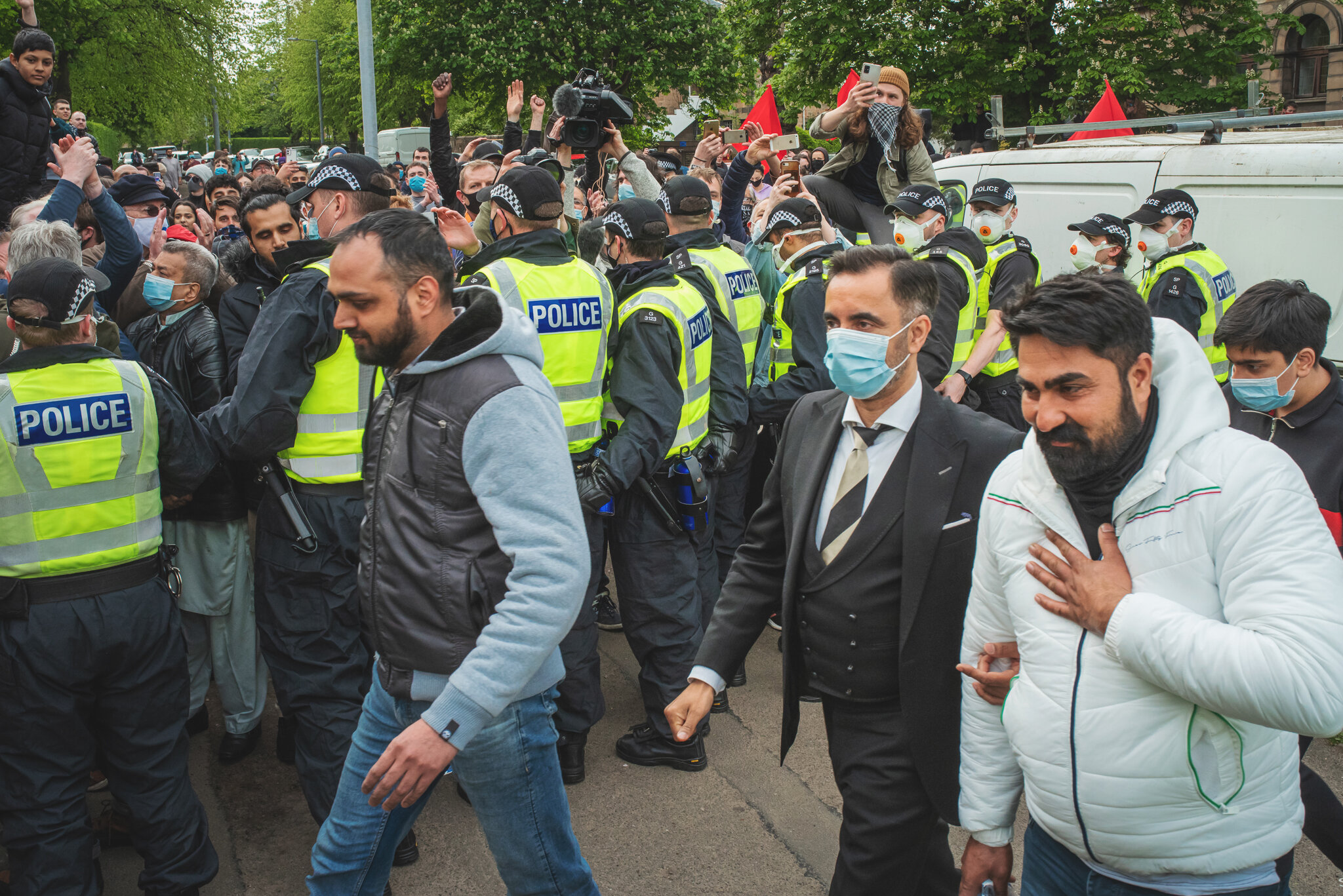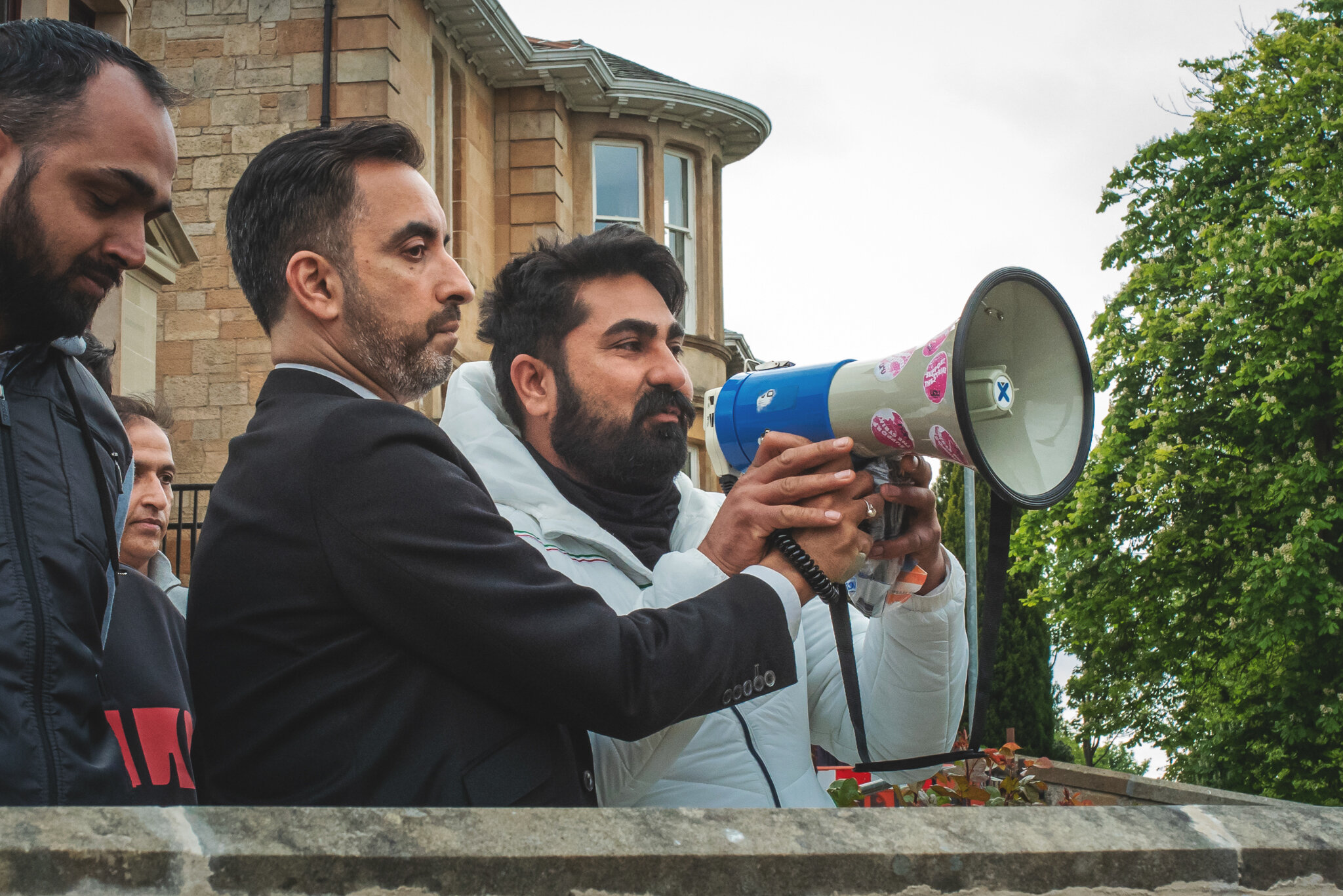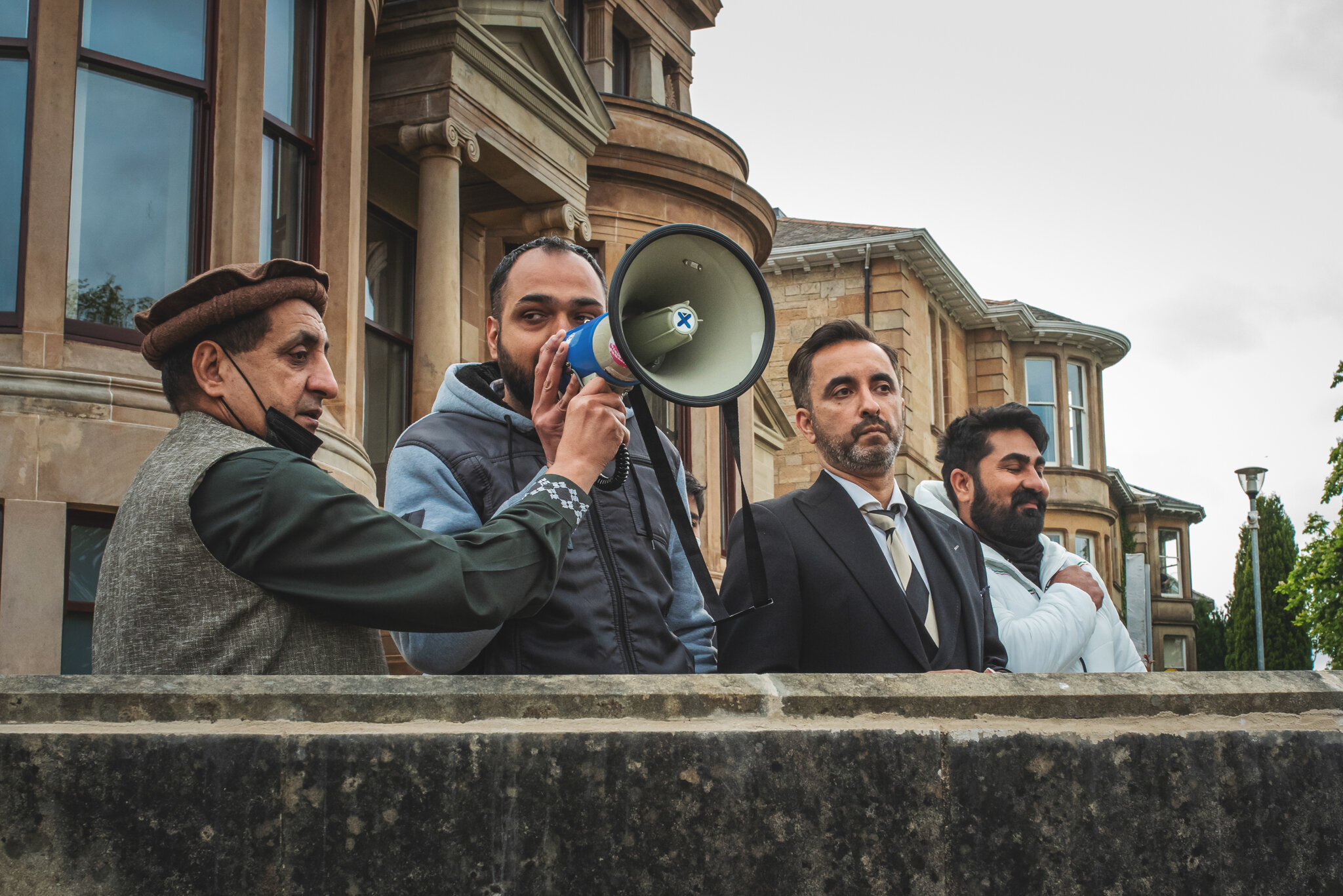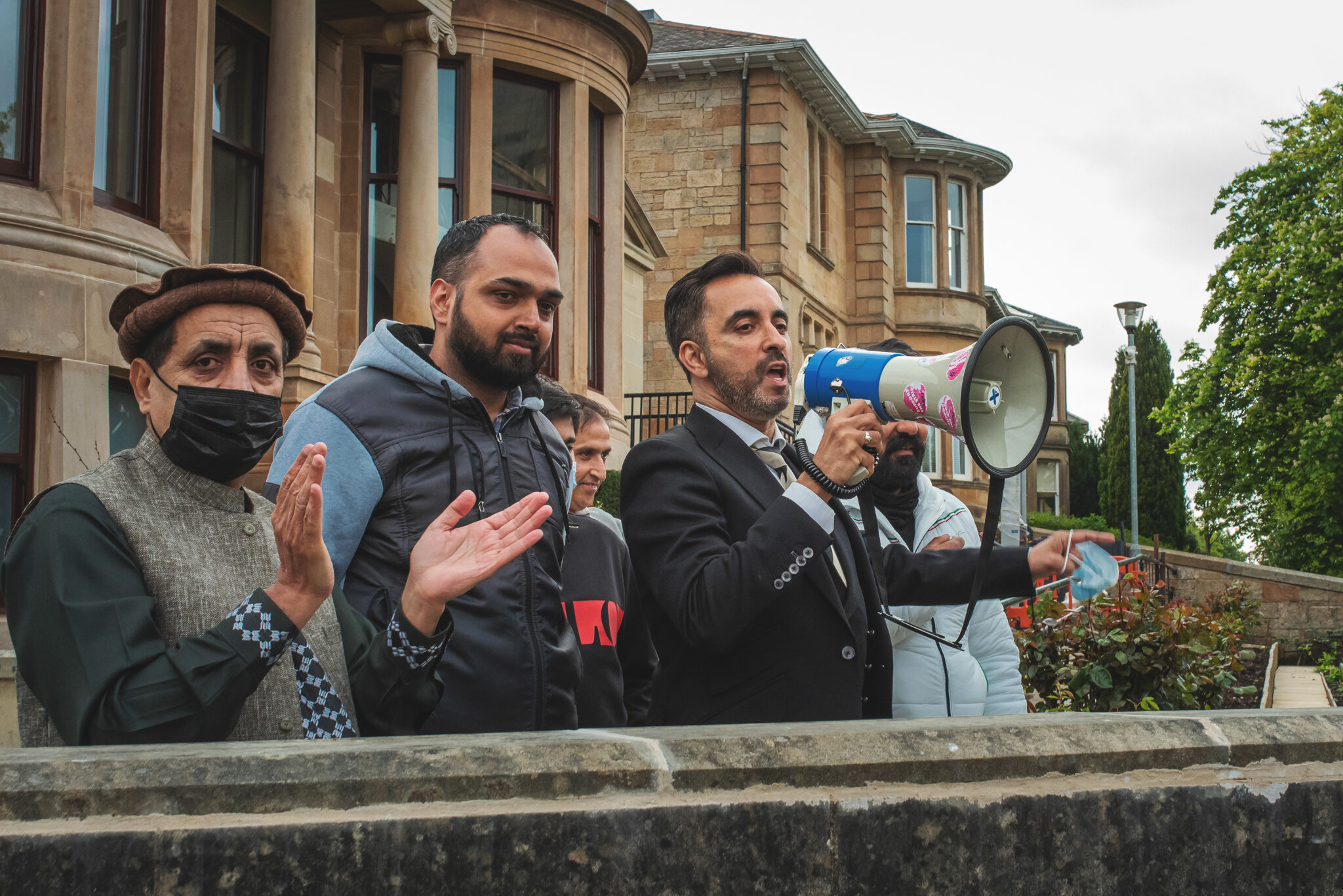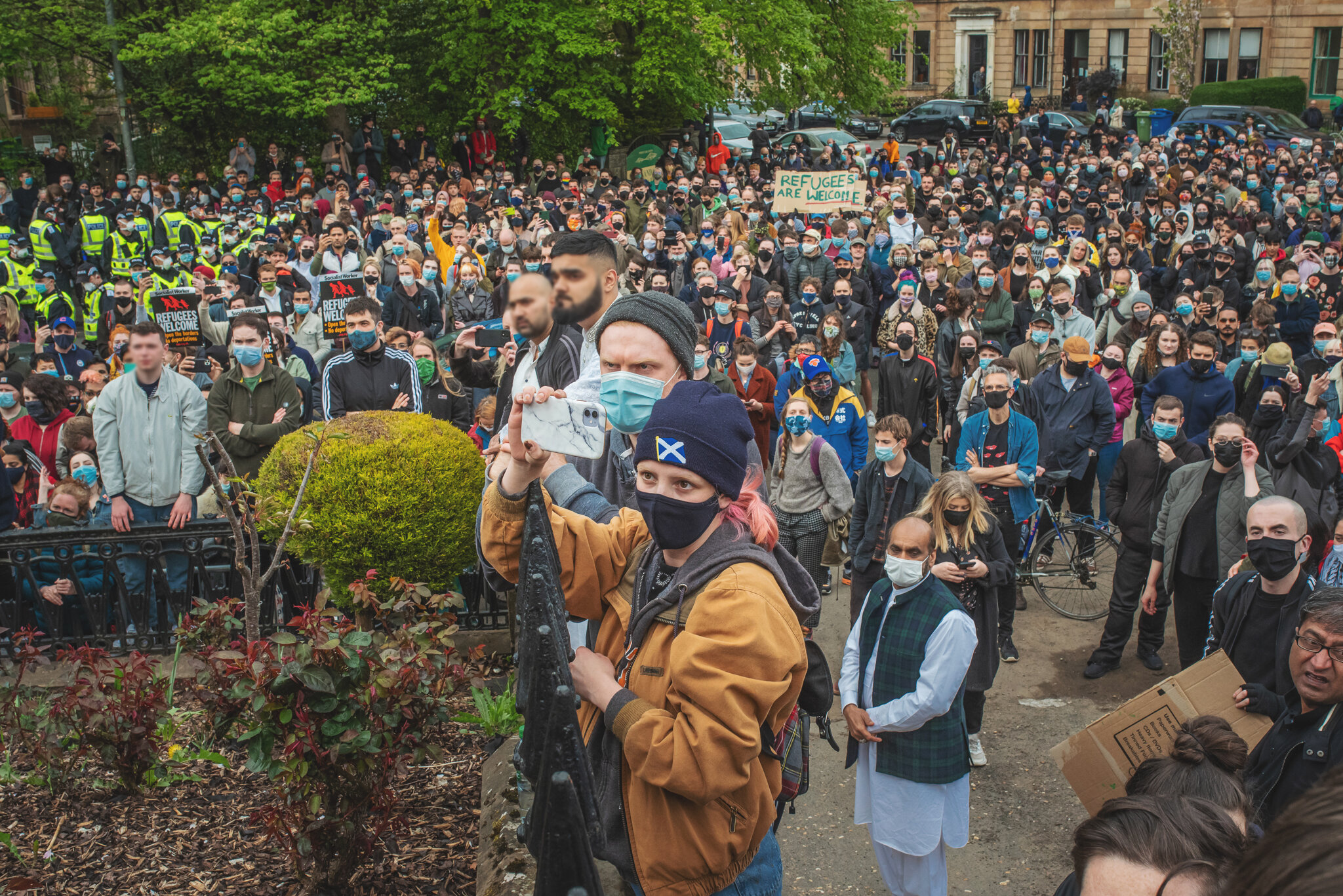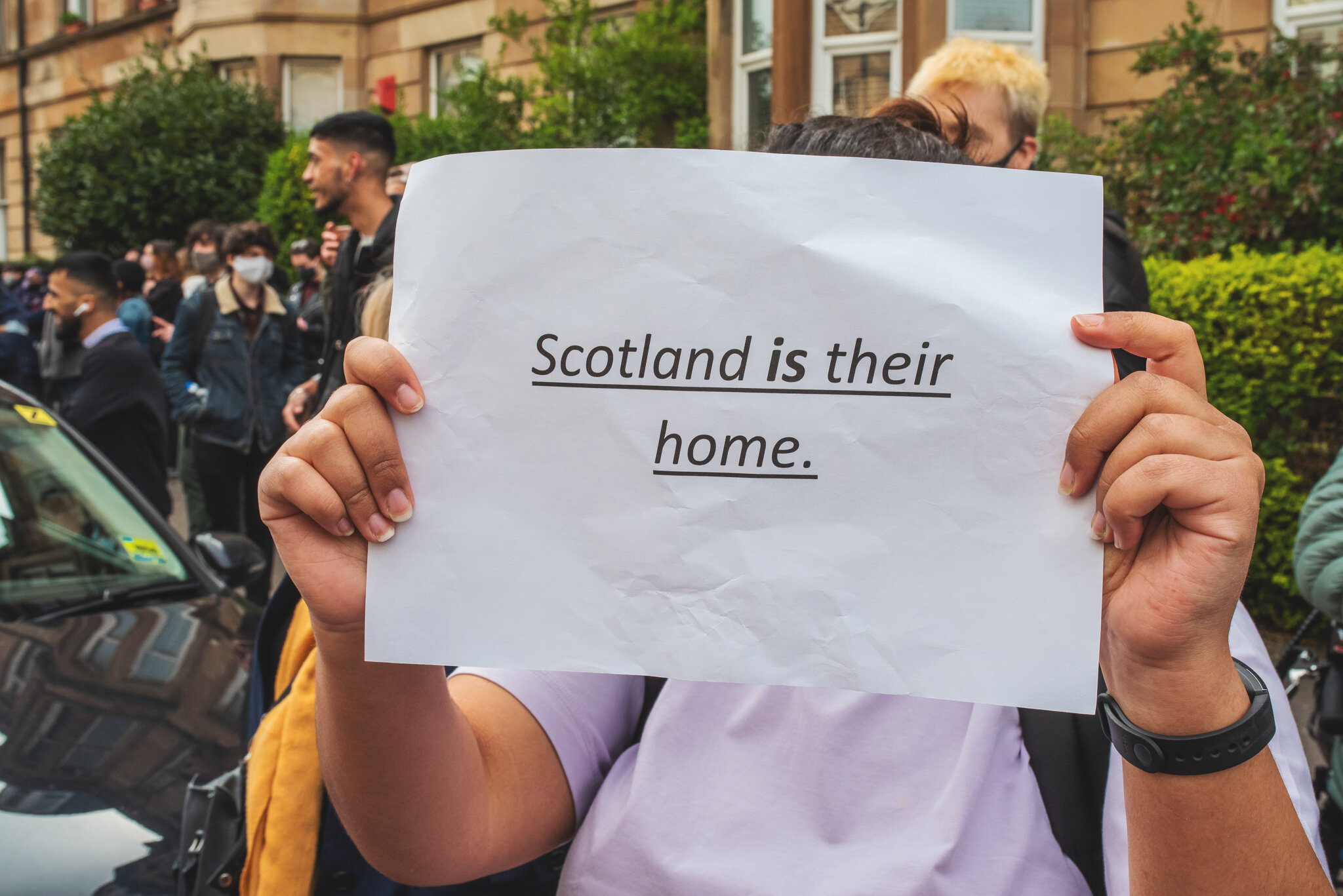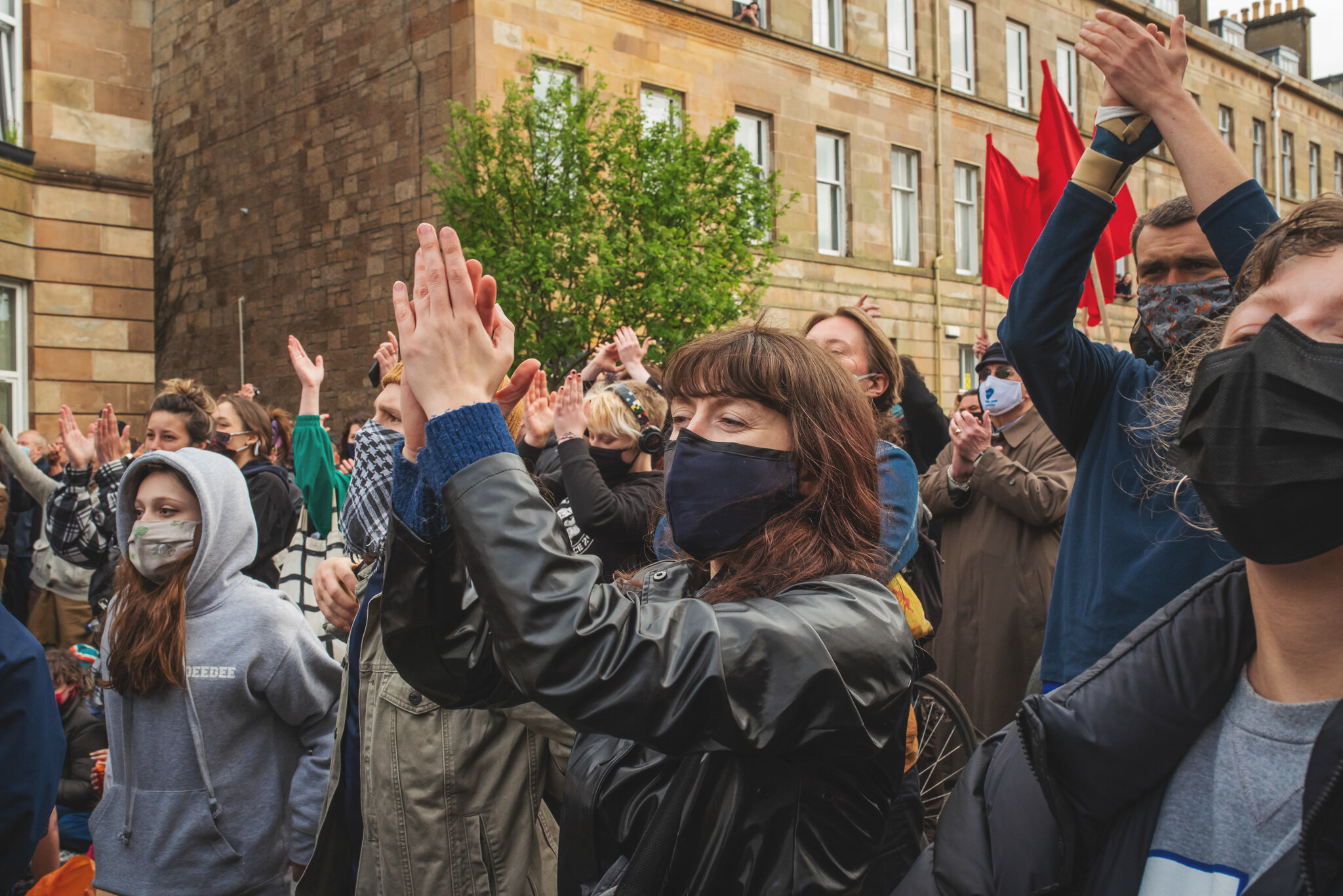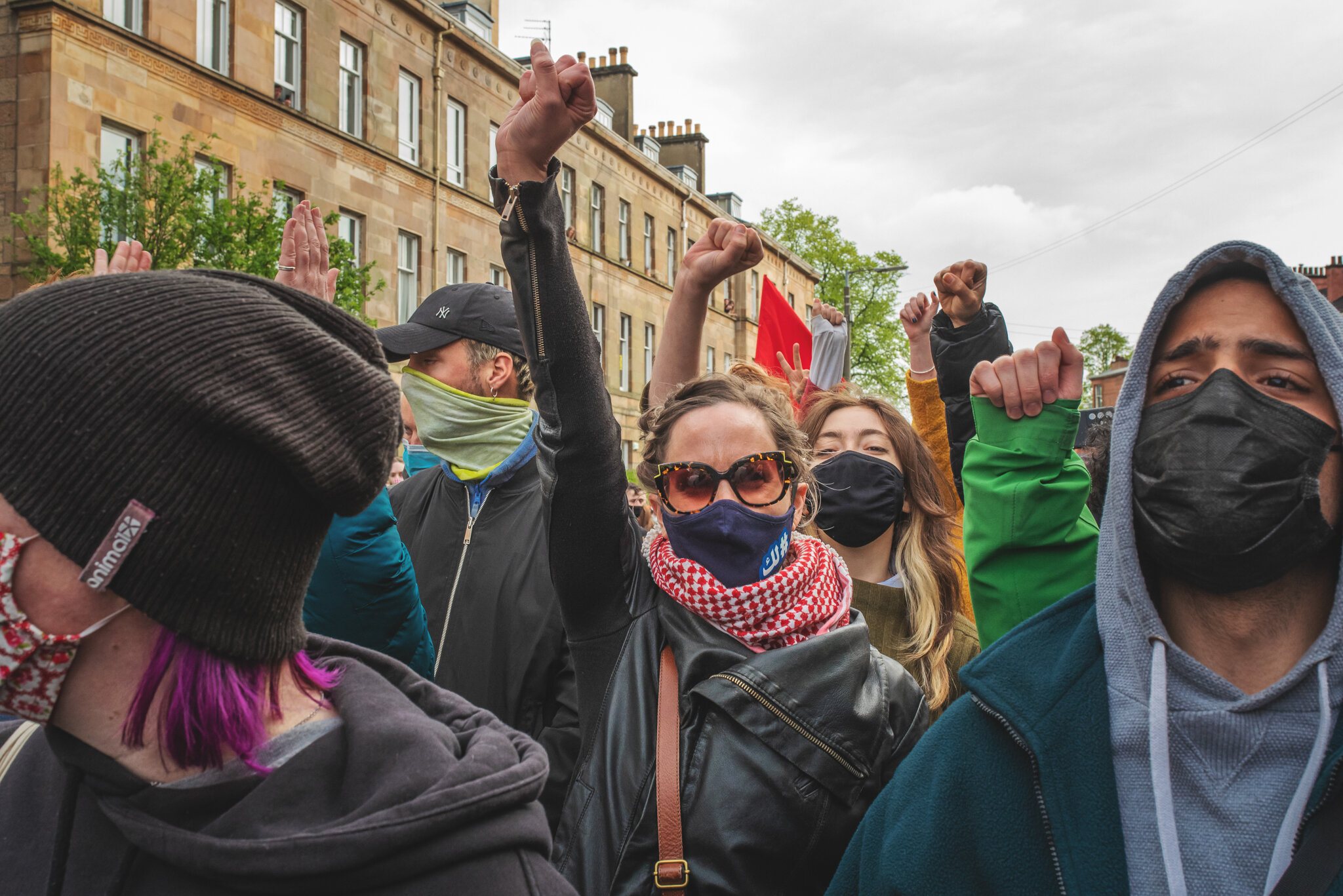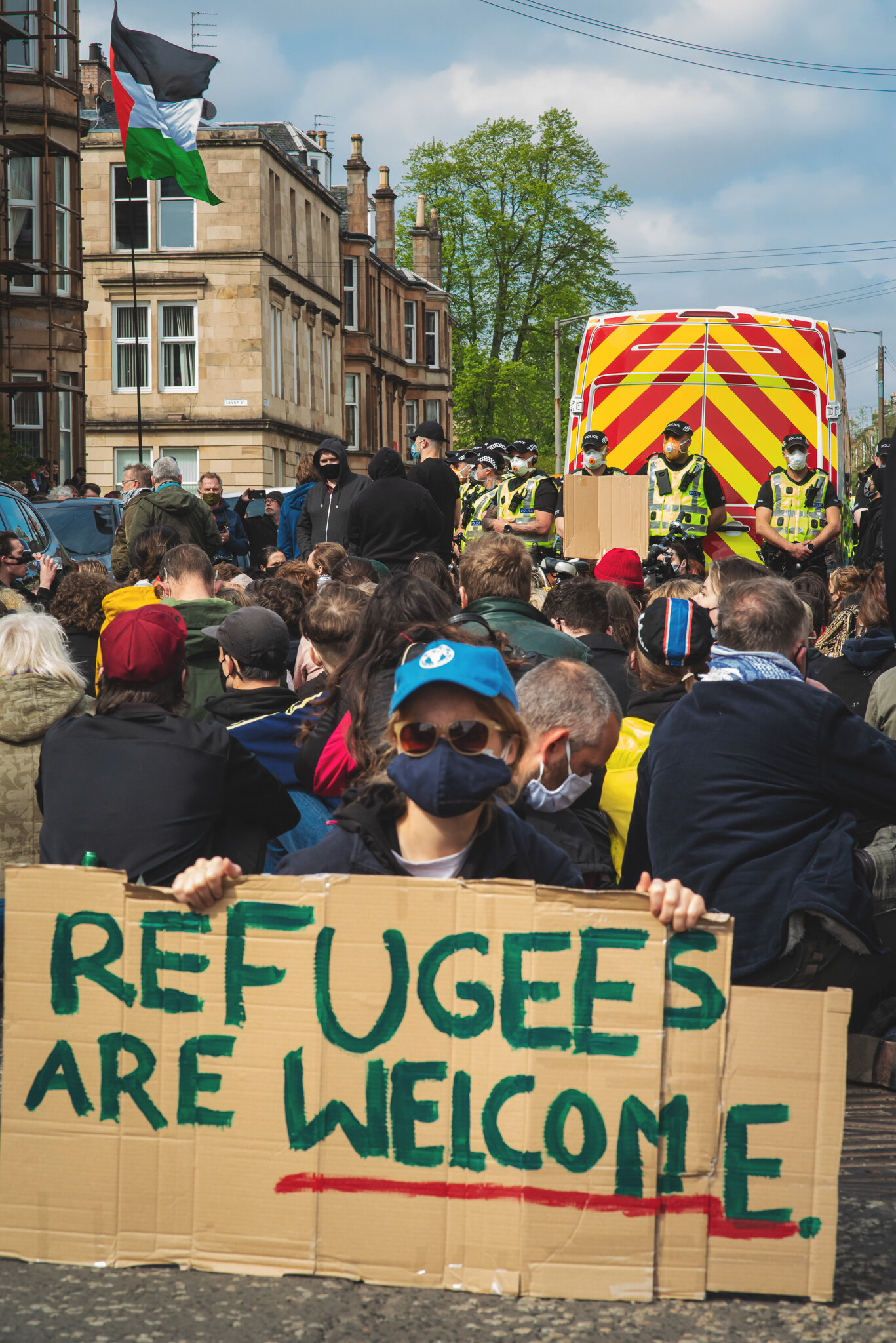“These are our neighbours. Let them go!” - Glasgow Stands Against The UK Home Office
“These are Our Neighbours. Let them go!”
That was the cry from the crowd on Kenmure Street yesterday, during an incredible display of neighbourly solidarity from local Glaswegians, and a stand-off between the people, the Police, and the Home Office that lasted the best part of nine hours. In all my life, I’ve never experienced anything quite like it - this was not a premeditated protest, this was an entirely organic and spontaneous exercise of direct action, and the result of years of community organisation and residents resisting unjust authority.
Around 9am, Immigration Enforcement officers arrived in Pollokshields to undertake what is known as a “Dawn Raid”, where individuals are given no warning before being forcibly removed from their home and taken to a detention centre. They do this in the morning, when they know residents are likely to be at home and often sleeping. These raids have recommenced recently after the practice was condemned, protested, and brought to an end around five years ago.
Lakhvir Singh and Sumit Sehdevi, a mechanic and a chef who have been Glaswegians for over a decade, were separated from friends and family members, and forced into the back of the Immigration Enforcement Van. What followed showed of the power of connected communities and direct action. A neighbour, seeing what was happening, climbed right under the van, preventing the officers from driving away. This bought enough time for others to get involved and contact friends - both informal neighbourly connections, and organised groups.
Past struggles against injustice in the area meant that residents had established relationships, and knew exactly what to do to prevent the eviction. As the van was blocked by residents, a growing number of police officers made attempts to forcibly disperse the crowd. This attracted the attention of residents on nearby streets, who joined to protect their neighbours. By this point, word had got out via groups such as Glasgow No Evictions Campaign and Glasgow Living Rent, and Kenmure street was quickly filled with hundreds of people, defying intimidating police presence. This enormous and rapid response was completely spontaneous, and to me was very reminiscent of the way people will unthinkingly run towards a disaster, fire, or accident; born only of concern for fellow Glaswegians. This crowd didn’t gather because they personally knew these two men, they gathered because they understood the nature of these Immigration raids, and the inhumane and callous nature of the UK Government’s “Hostile Environment”, typified by Theresa May’s words “we can deport first and hear appeals later.” Indeed, according to the Home Office’s own figures, almost three quarters of raids like these target people who are actually ineligible for deportation - but once they are taken to a detention centre they can become trapped in the system and imprisoned without trial for years - in detention Centres where covid rates are high and conditions are notoriously awful. Had Lakhvir and Sumit faced deportation, it would have been to India, which is currently overwhelmed by a horrific wave of Covid. It really doesn’t bear thinking about, and is why the Pollokshields community were prepared to step in and prevent these unjust evictions.
During the hours-long standoff, the acts of compassion and solidarity continued. Local shops and faith centres opened their doors and distributed food and water to the crowd. People could be seen circulating the street offering drinks and facemasks. Neighbours looked out from windows, and painted signs of support began hanging from the flats above. Among the crowd were families, children, grandparents. As the news of the stand-off became national, Scottish politicians and other public figures began tweeting support for the people of Pollokshields, and a number of MSPs spoke to the crowd via telephones held up to megaphones. Alison Thewliss, MP for the area, attended in person, and loudly and strongly condemned the Home Office’s actions.
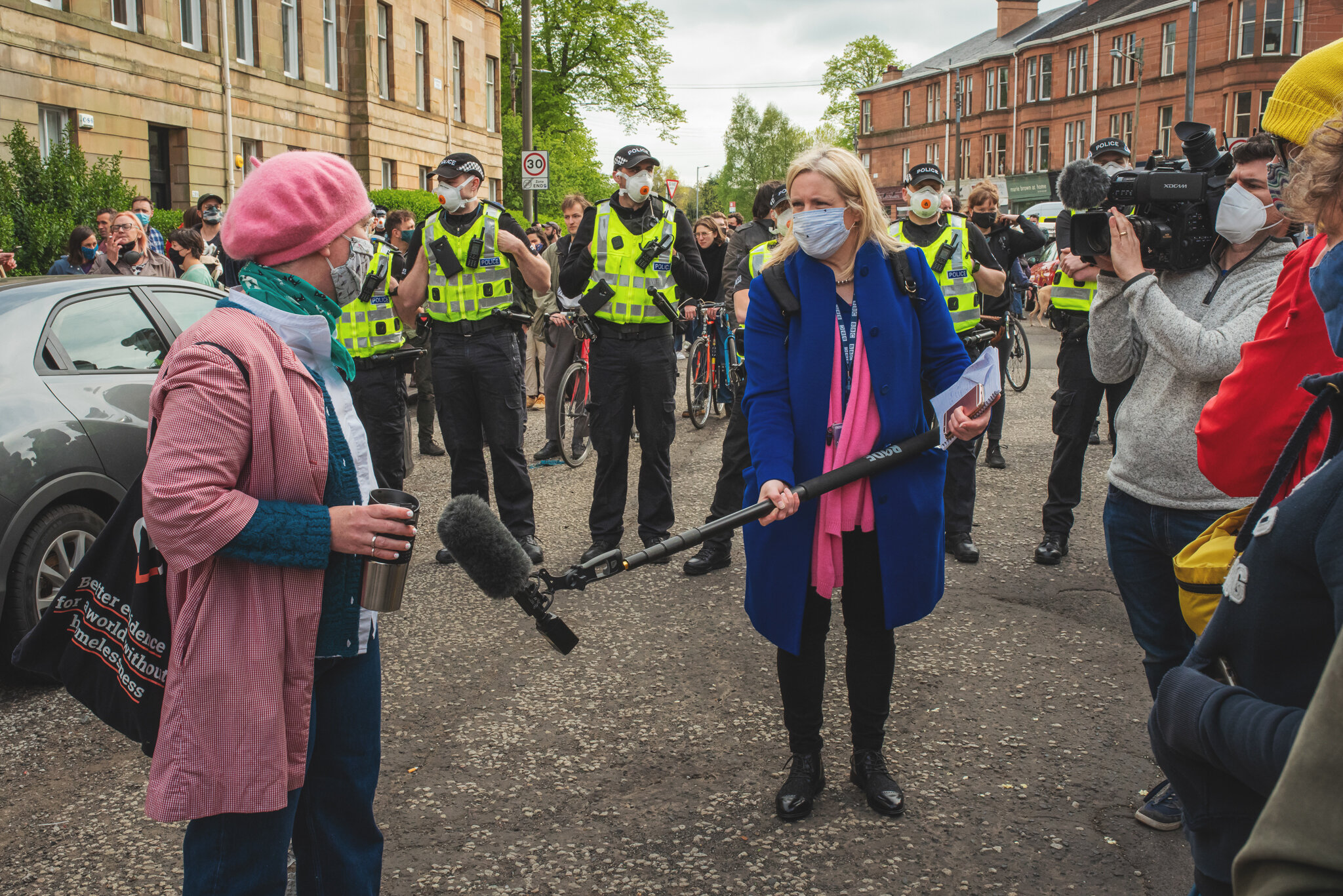
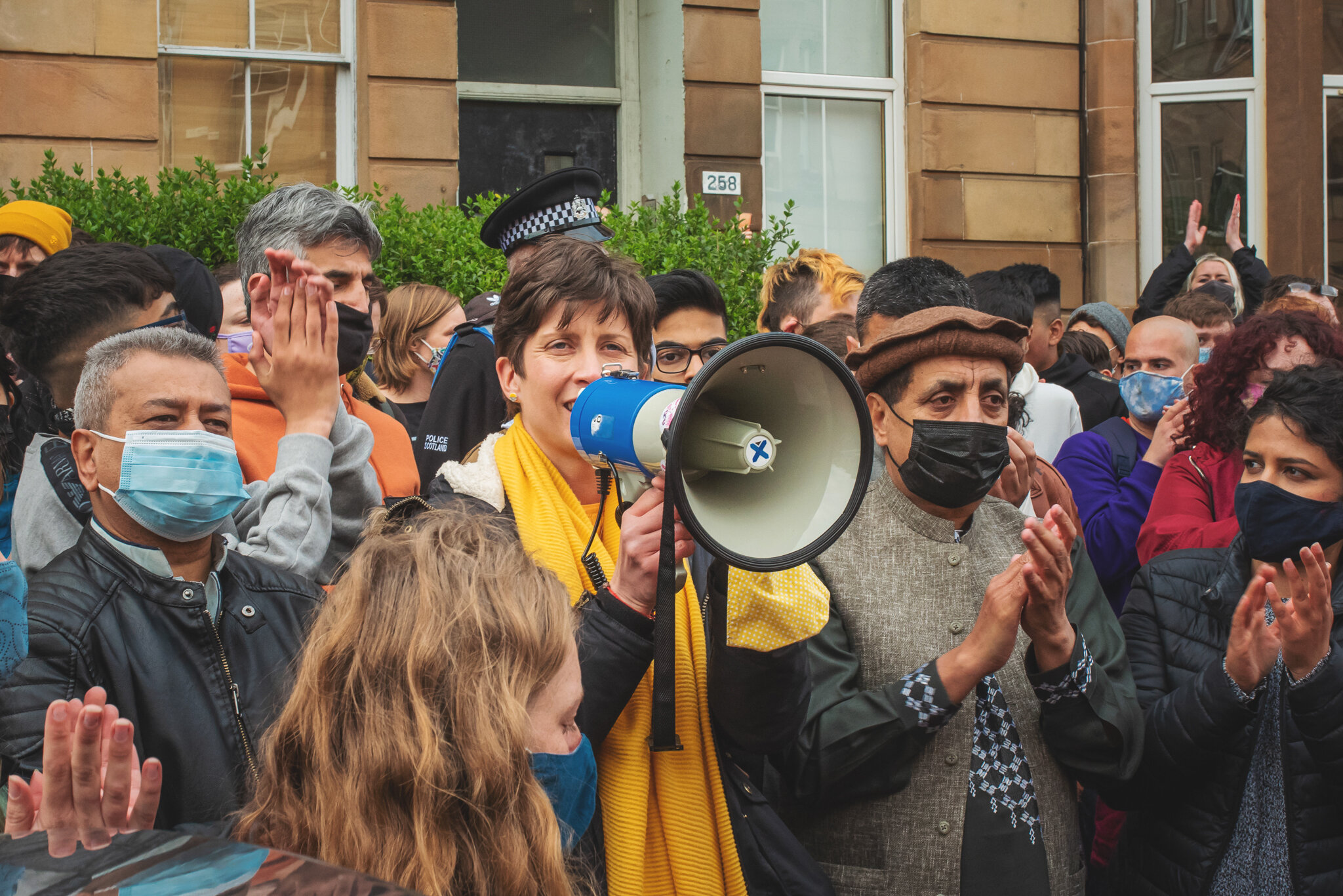
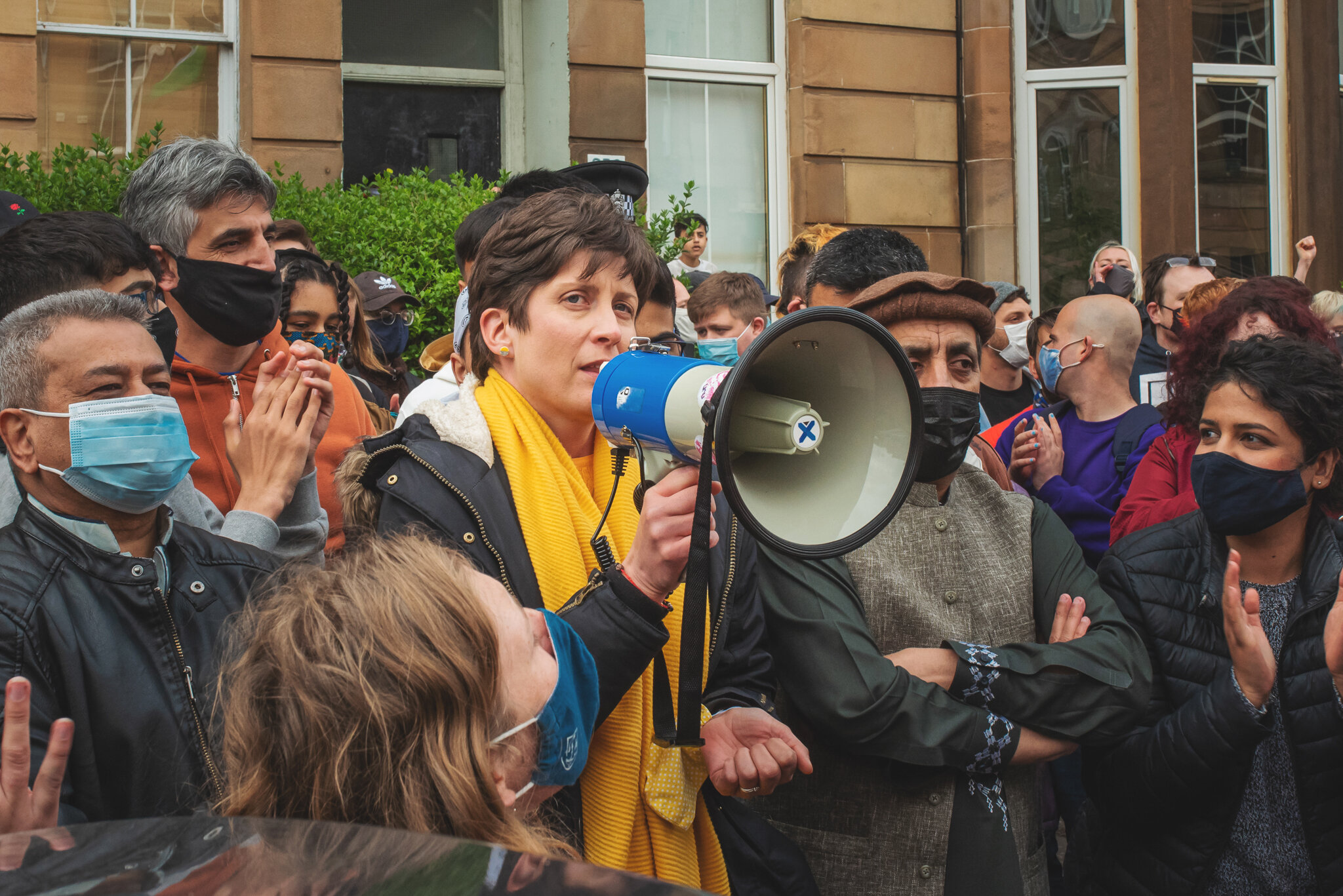
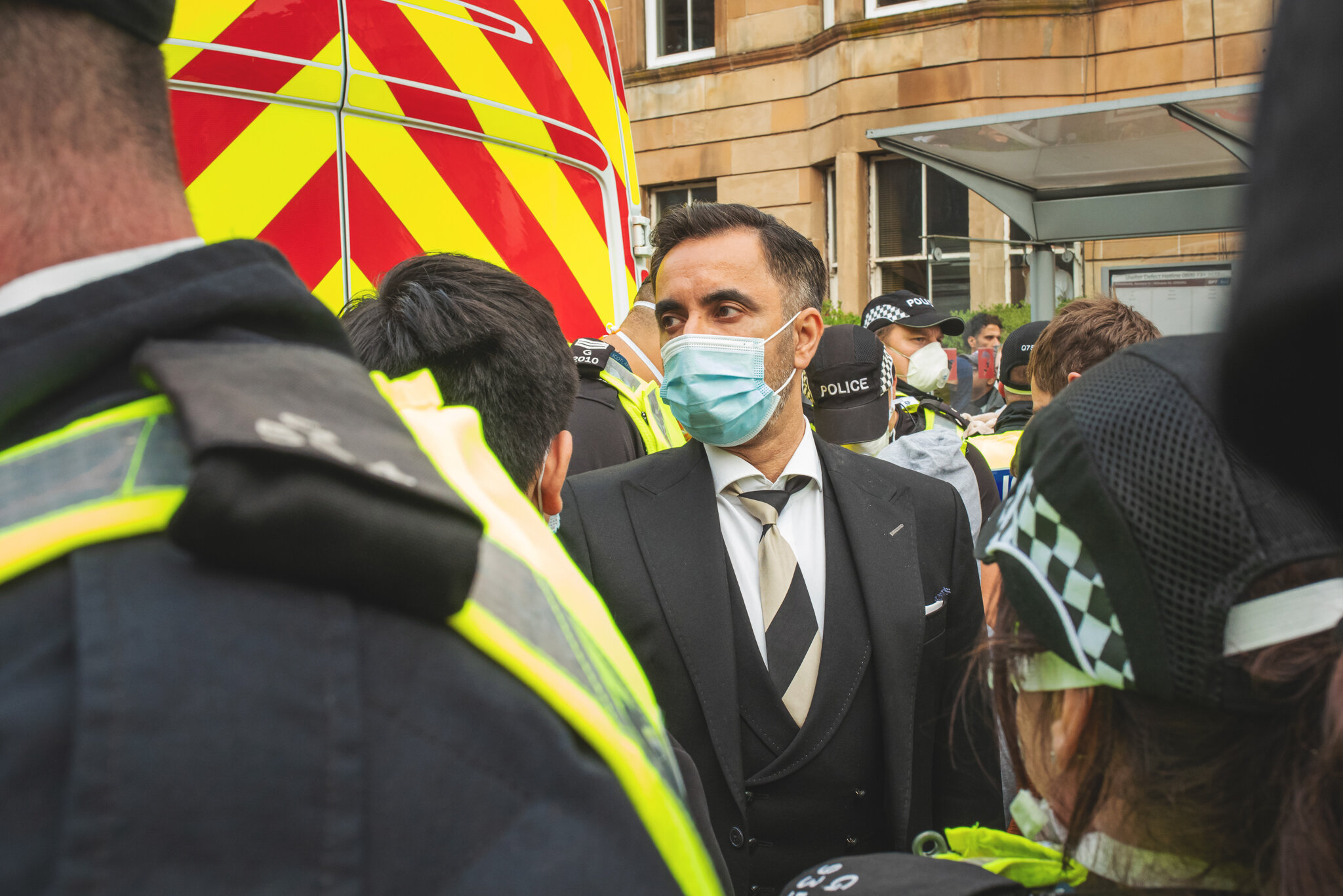
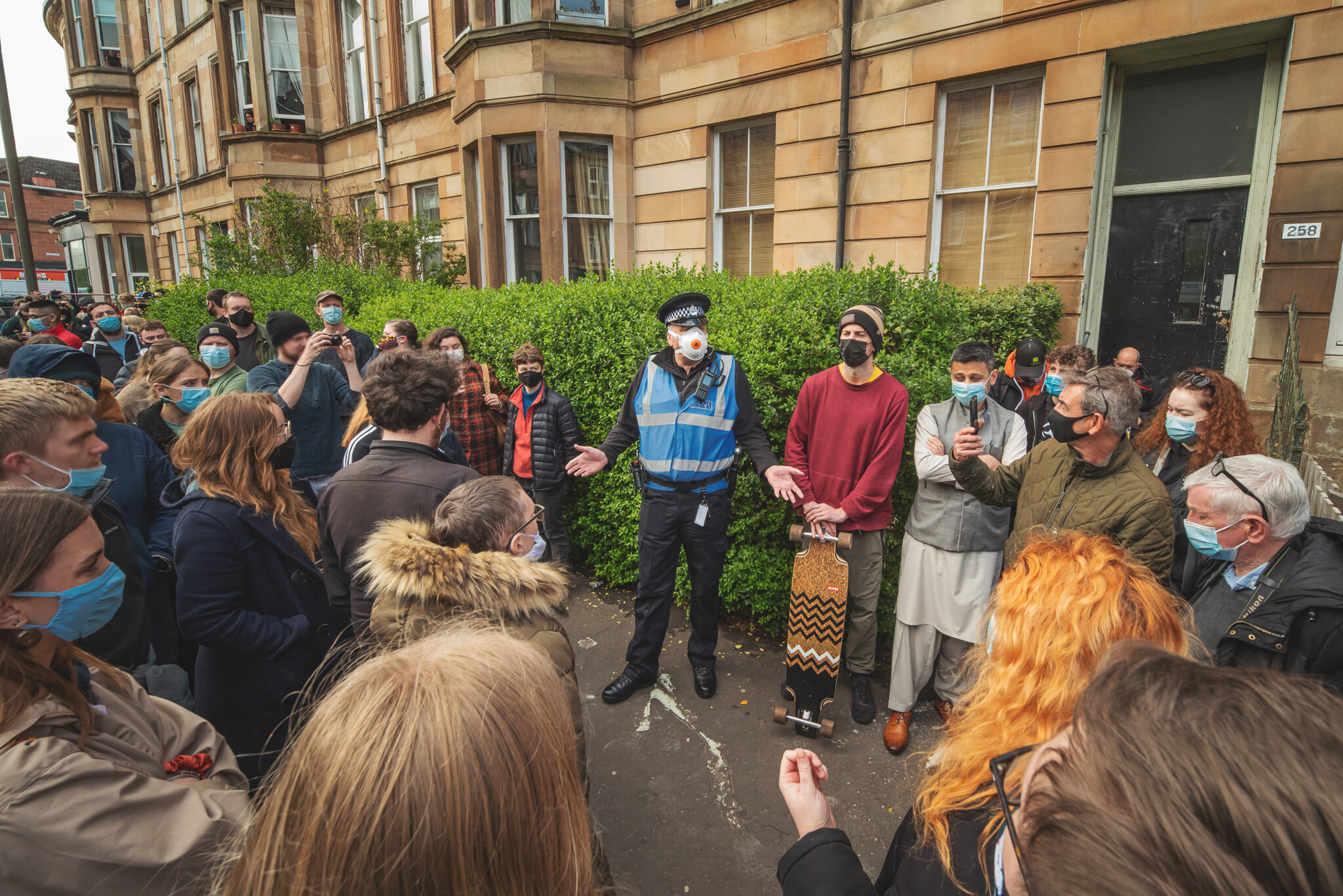
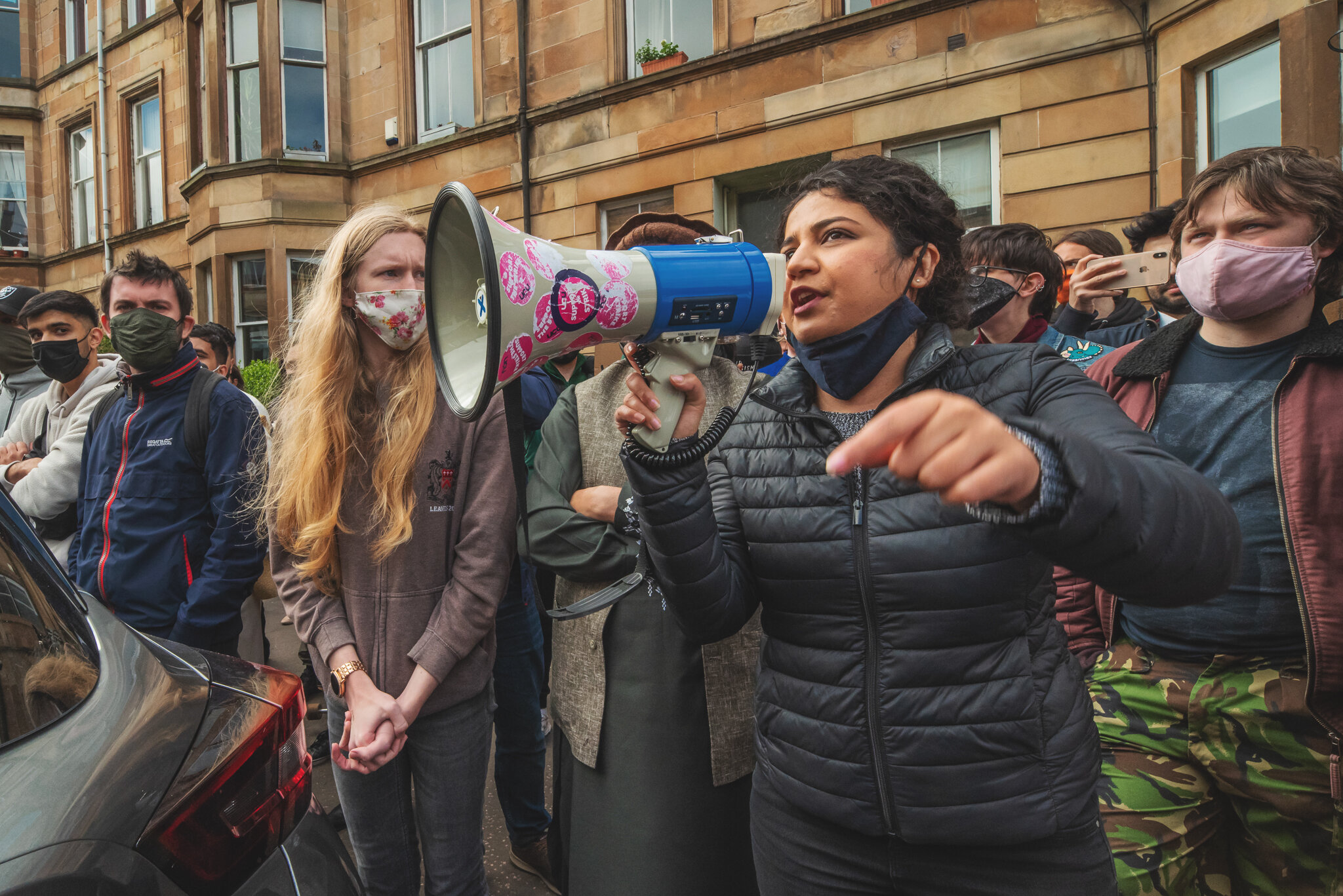
During all of this activity, while tension with police waxed and waned, and Glaswegians of every walk of life took their place on the street - Lakhvir and Sumit remained trapped within the tiny cells inside the Home Office Van. As Police refused to release them, the crowd continually called for them to be let go, and expressed concern for their wellbeing. The sun had been beating down for most of the day, and whether the men had been provided with food and water was unclear. Police made one final attempt to violently remove people under the pretence of allowing paramedic access - thankfully this did not escalate the situation, and credit must be given to the crowd for remaining entirely peaceful throughout the day. While peaceful, there was real anger in the air though; anger at Home Office Policy, Police tactics, the fate of the two detained men, and the concerning number of “Blue Lives Matter” patches being worn by officers - these not only go against Police Scotland uniform code, but are a blatant and irresponsible racist dog whistle, in response to the Black Lives Matter movement. They are sold to raise money for a Police charity, but the image is inseparable from it’s divisive and oppositional connotations. That these officers displayed this aggressive bias proudly during such a tense situation centered on potential deportations was brazen, and honestly a bit dystopian.
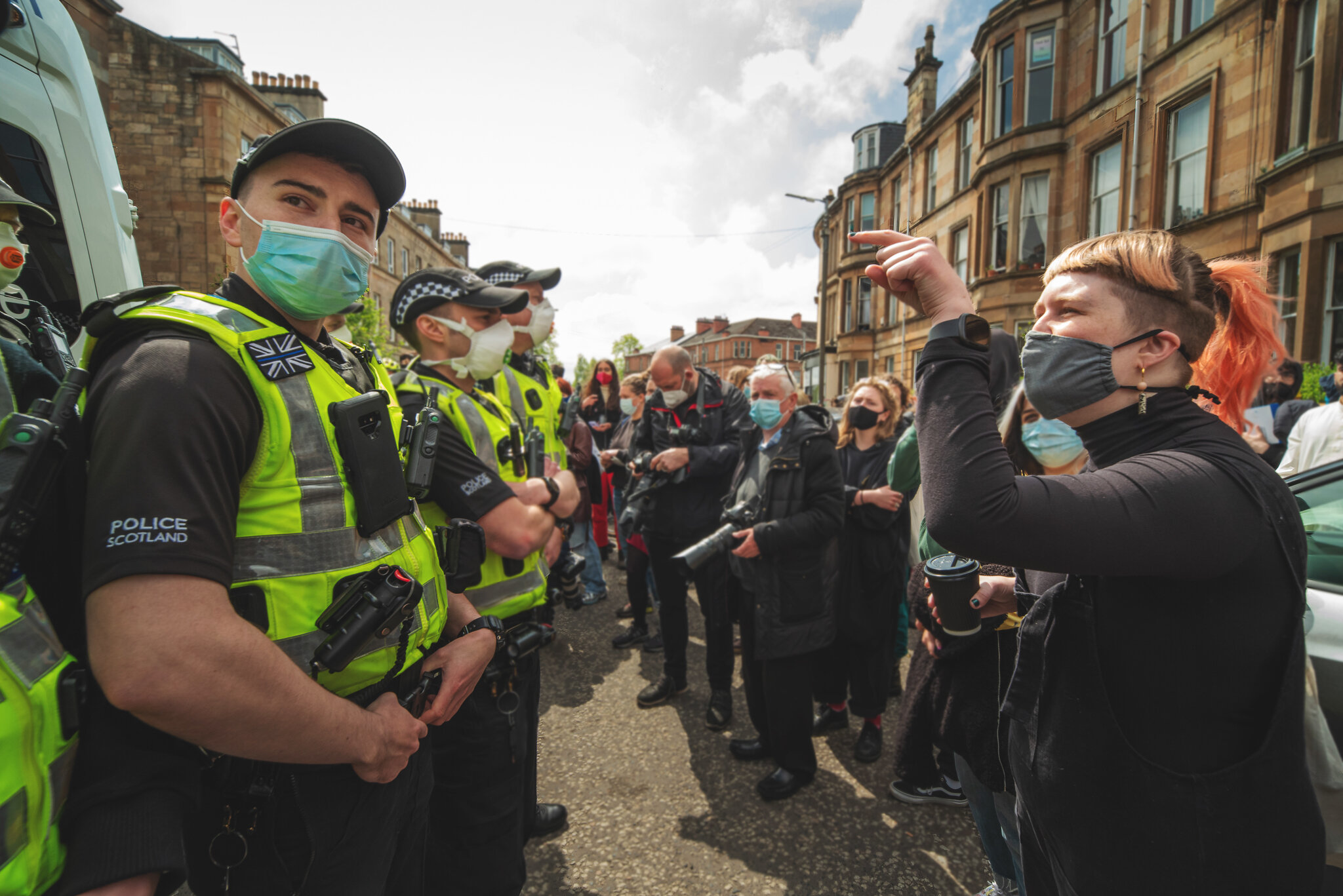
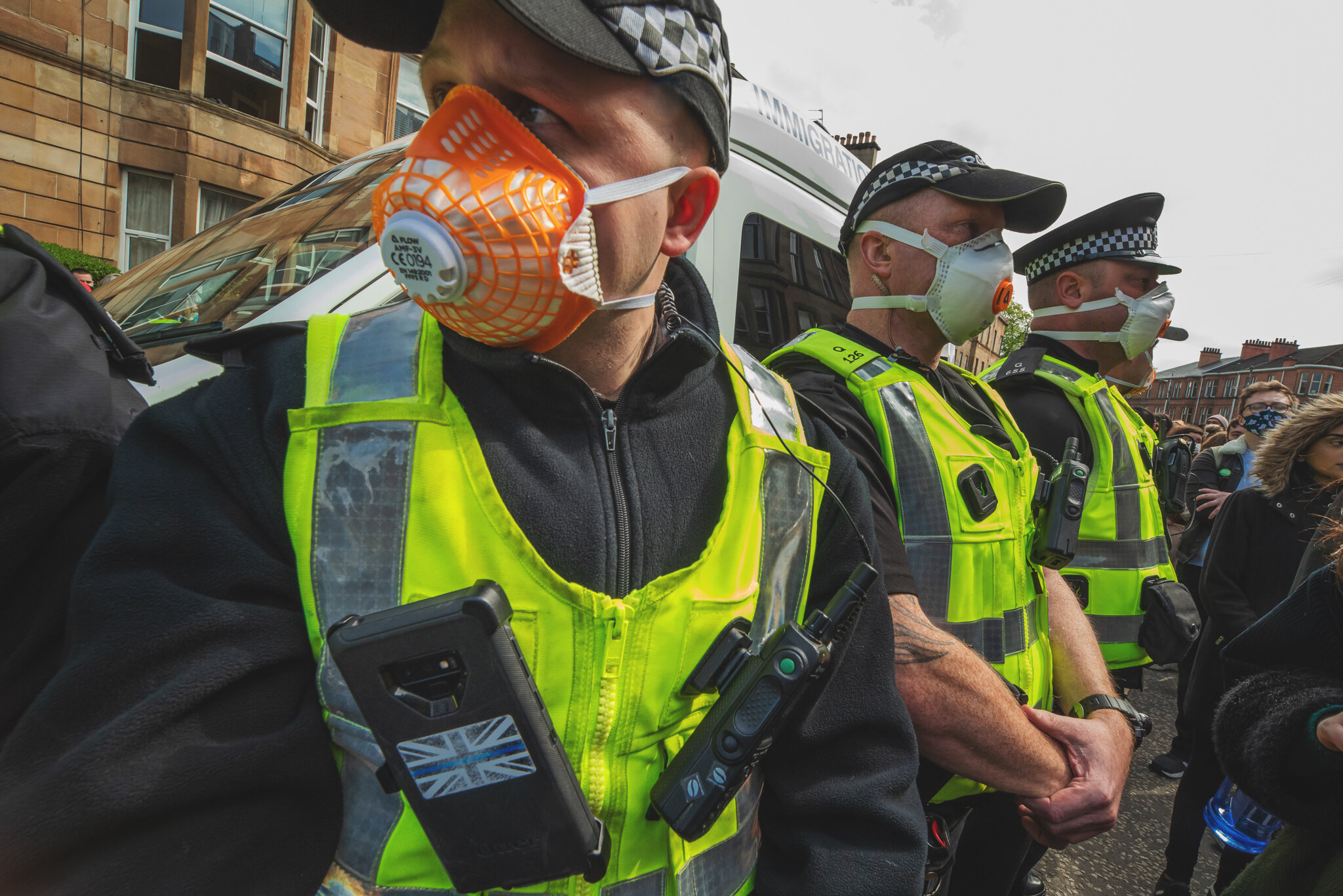
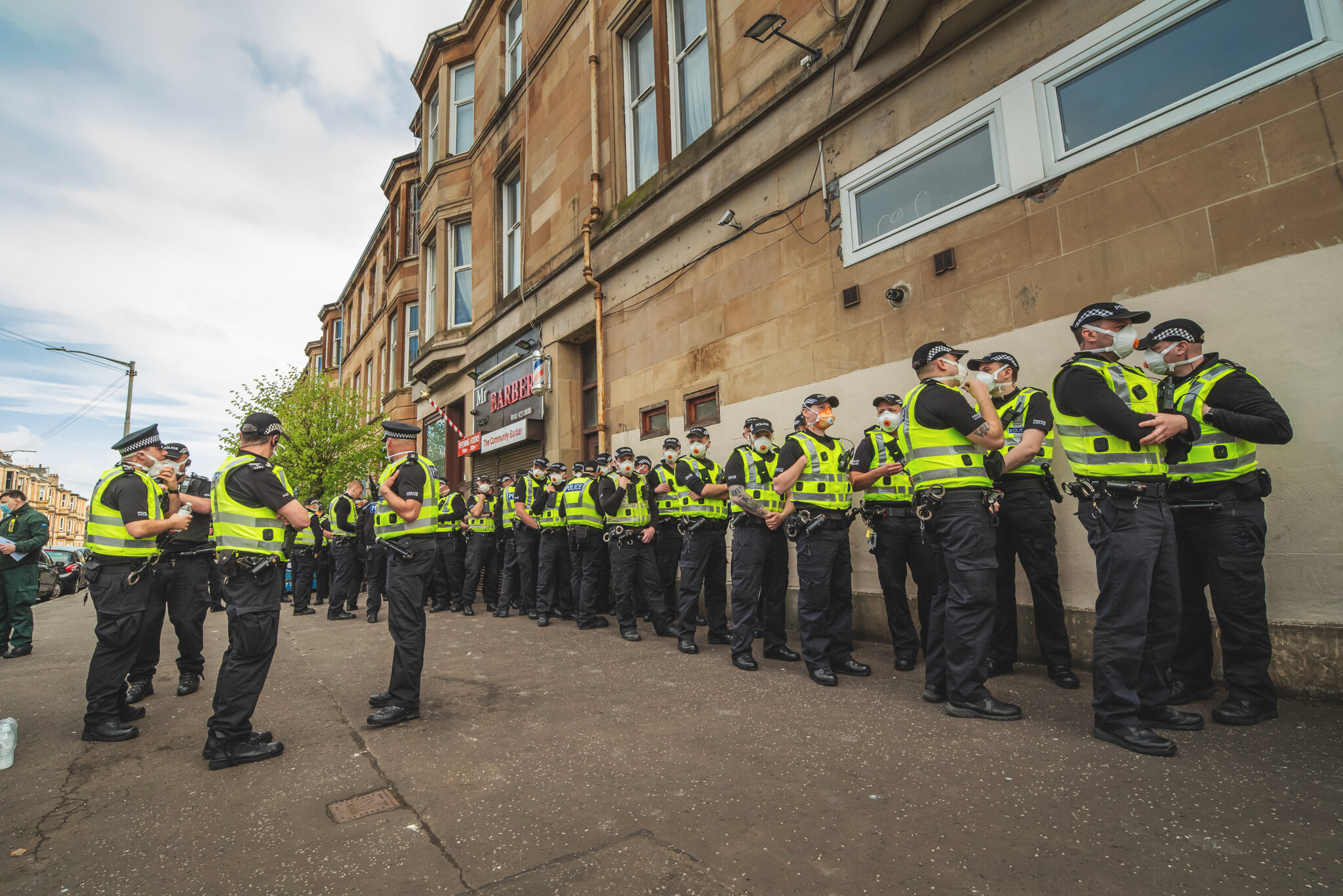
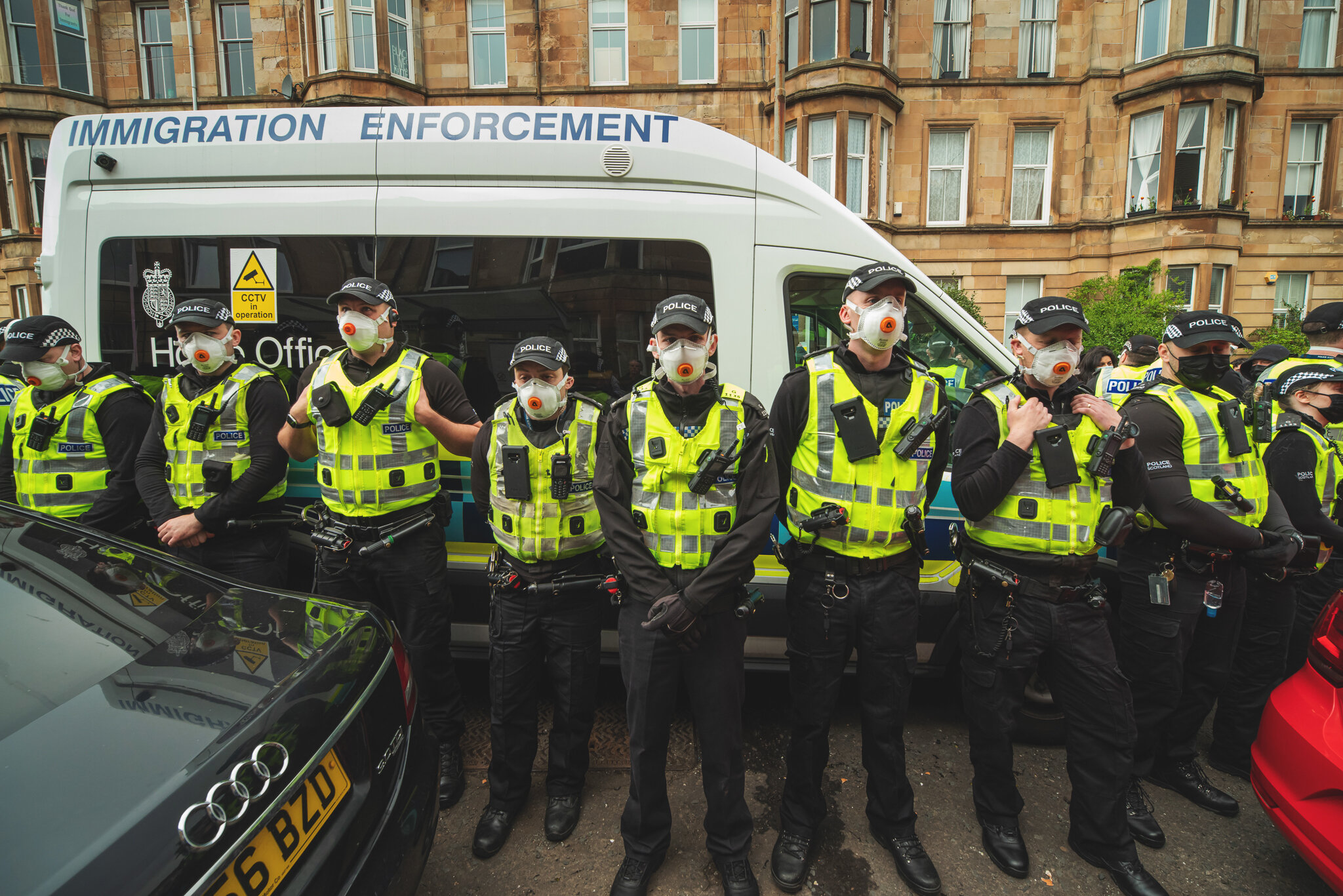

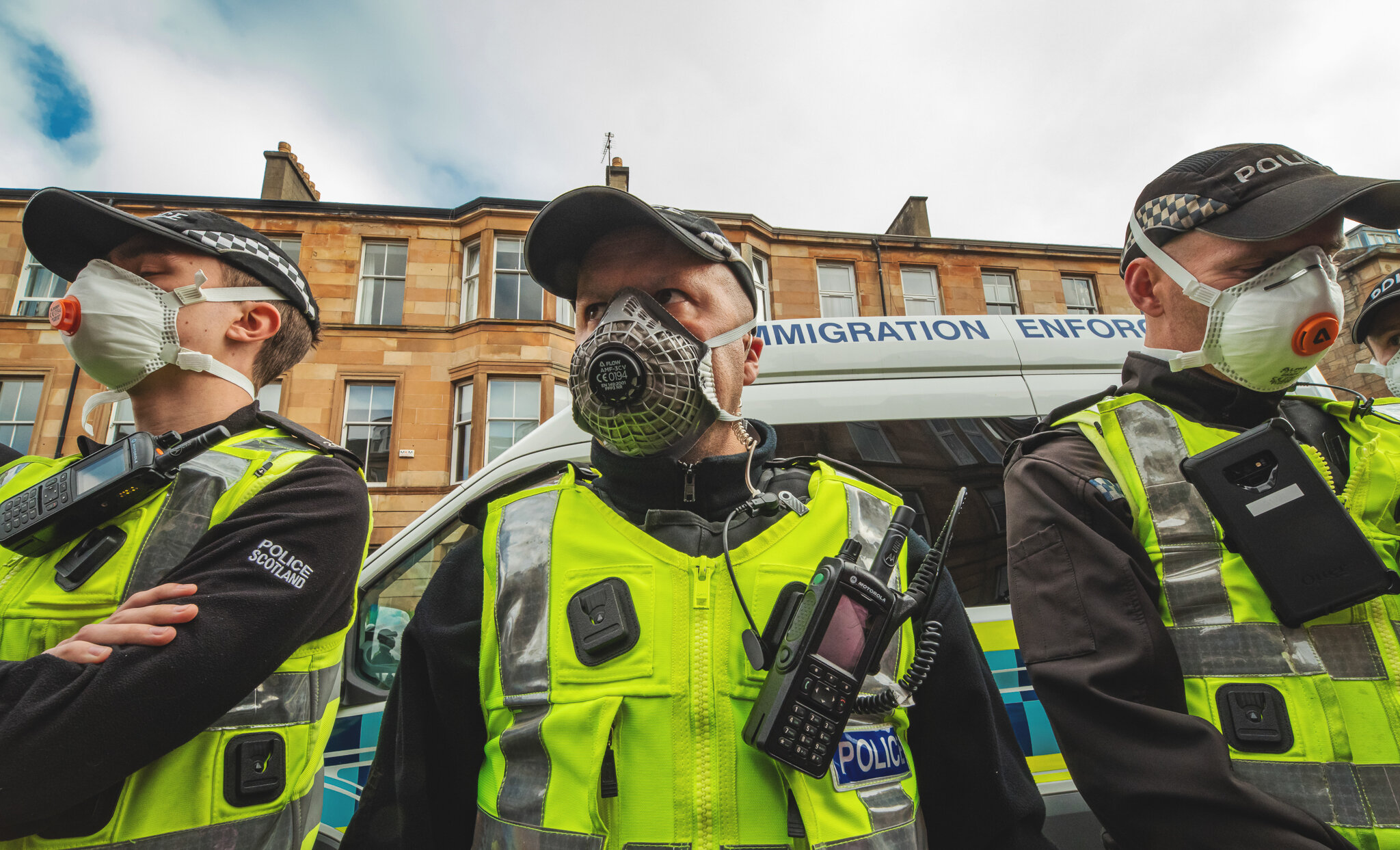
Police Scotland issued a statement claiming they were only there for “public safety”, and are not involved in facilitating Home Office procedures. To anyone who was on Kenmure street, this is transparently incorrect. It was only the Police who held the power to release the detainees, and officers repeatedly tried to prevent interruption to the eviction, at times violently. Thankfully, and to the ire of a no doubt apoplectic Home Office, Police Scotland chose not to further escalate the situation, instead choosing to release the two men to the community. Having gathered a greater number of officers and horses than I have ever seen at any incident, thoughts of how differently things could have gone are chilling.
After a long day, paramedics were finally sent to check on the pair, and lawyer Aamer Anwar achieved a written agreement with the authorities that the men would be released into his care, with no charges to be made against them, and no further eviction attempt made until their case was looked at further. [The UK Home Office have since made public their continued intention to deport Lakhvir and Sumit, with no sign on backing down or changing policy].
As Lakhvir and Sumit were released from the van to rapturous cheers, a wall of police escorted them to a nearby faith centre, surrounded along the road by the ecstatic crowd. Handed megaphones, they gave their thanks to the people of Glasgow who had stepped in to prevent what would have been a horrible ordeal. I cannot adequately put into words the emotion that saturated the air at this moment - the people of Glasgow stood up to the UK Home Office, stared down Police Scotland, and had won. This series of events started with one man diving under a van, but sends a powerful message to the rest of the UK; we reject Westminster’s Hostile Environment, and it will be resisted.
The Home Office has since reiterated it’s intention to continue the war on working-class immigrants and refugees, but now the people of the UK have seen that resistance is not futile. How the Scottish Government and Police Scotland choose to move forward is anyone’s guess, but I suspect the three-way stand off we saw on Kenmure street will continue around the country. Whether the decision to release the men came from officers on the ground who could see the obvious fact that the people of Pollokshields would not relent, or whether it came from the Scottish Government who Police Scotland are ultimately answerable to, one thing is for sure - this was only possible due to connected communities, and is another reason why I love this wonderful city.
On the matter of Covid-19, it’s clear that gatherings of people should be avoided; we’re in a pandemic, and being near people risks increasing transmissions. Some problems really require direct actions however - so how do we balance these two competing forces? I’ve gone back and forth on this a lot in the last twelve months, and I’ve come to the conclusion that the only people who should have the right to decide on whether gathering for direct action should take place are those directly affected by the problem. So for example, last summer refugees were being forced into inhumane conditions in hotels - a demonstration at George Square was their only option to bring attention to what was, to them, an emergency. Similarly, the actions that took place on Kenmure street were the result of a community responding to an emergency.
And to the crowd’s credit, in my own judgement, people adjusted their behaviour as best they could given the circumstances. The seriousness of the virus was lost on no one, and as such distance was kept wherever possible (and people were incredibly polite about it), masks were worn by all throughout the day, and while many stood shoulder to shoulder, very few ever stood face to face. I am not exaggerating when I say I felt safer among this community than I would within a busy beer garden, where masks are not necessary, people sit face to face at close distances, and alcohol dulls our sense of distance.
Nevertheless, I will be performing at-home Covid tests when appropriate, as I do before and after every shoot I undertake this year.


